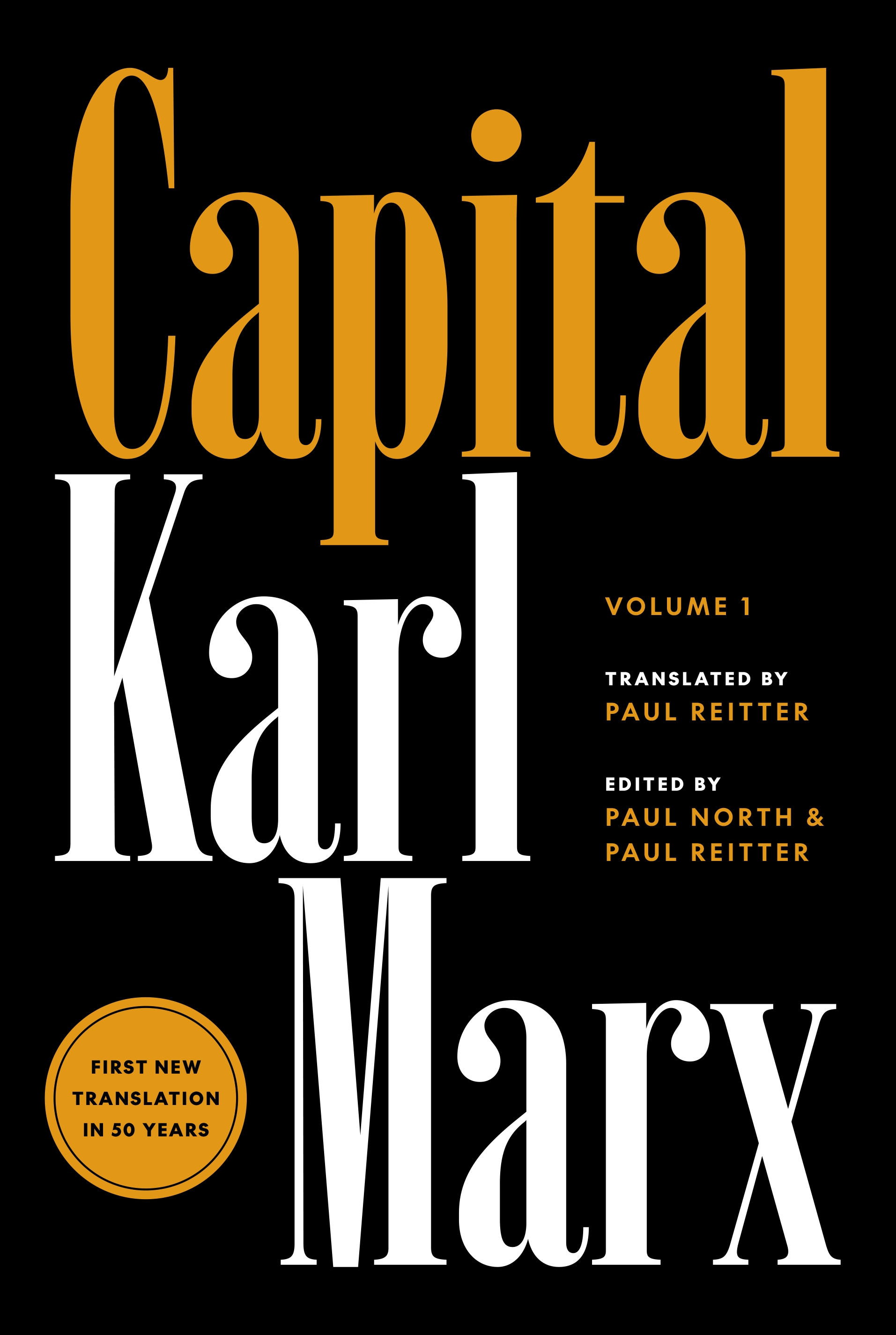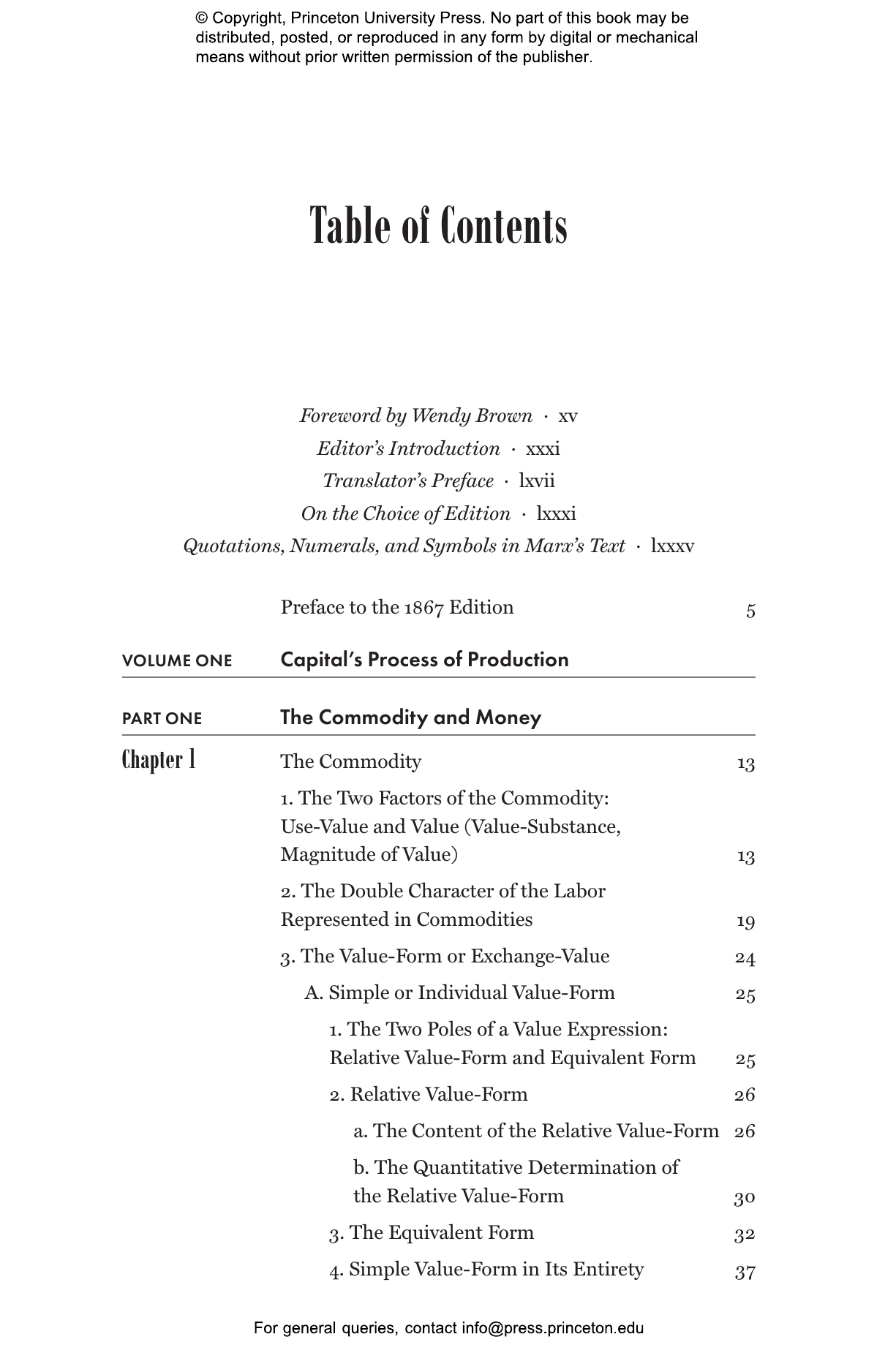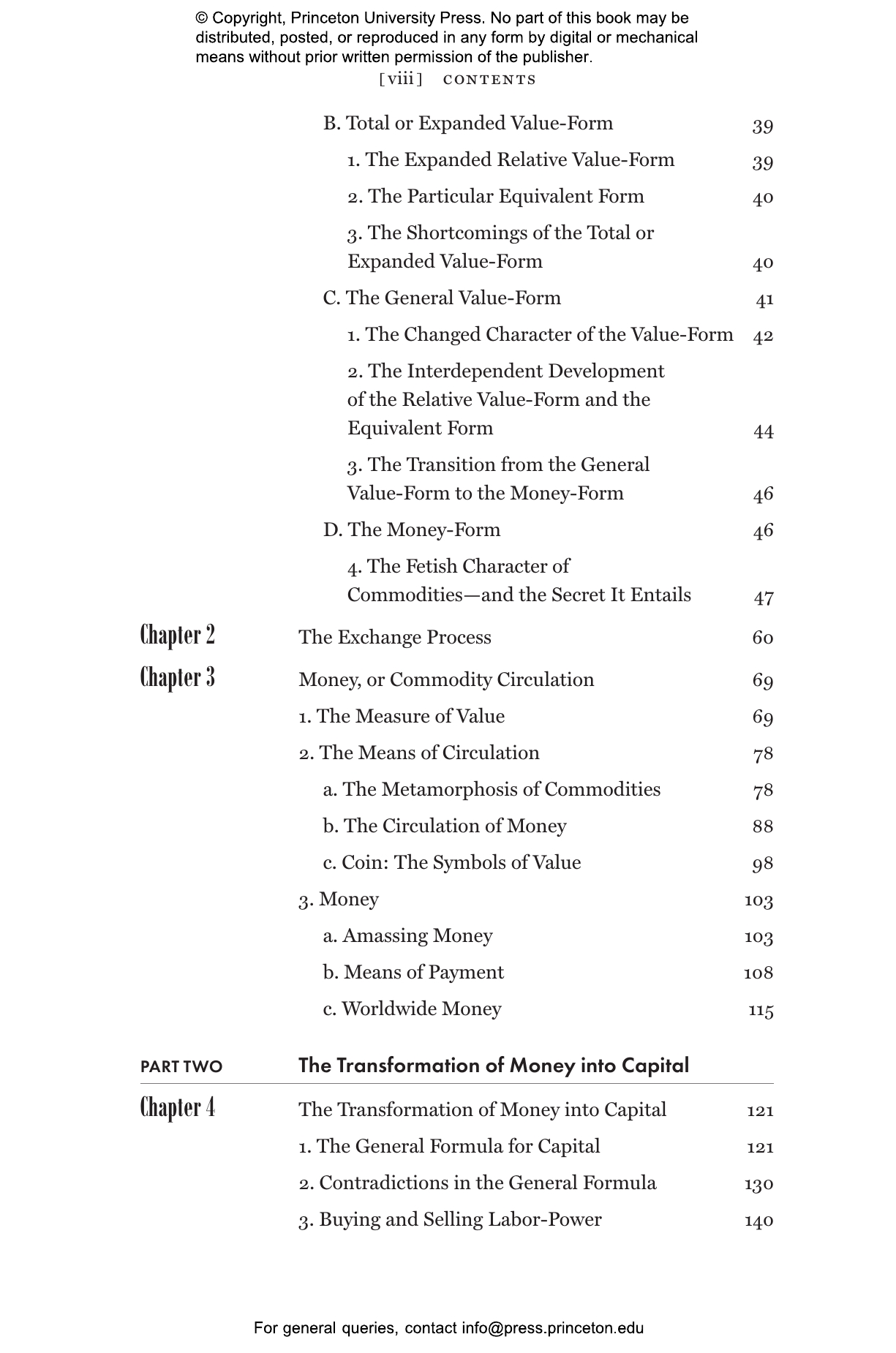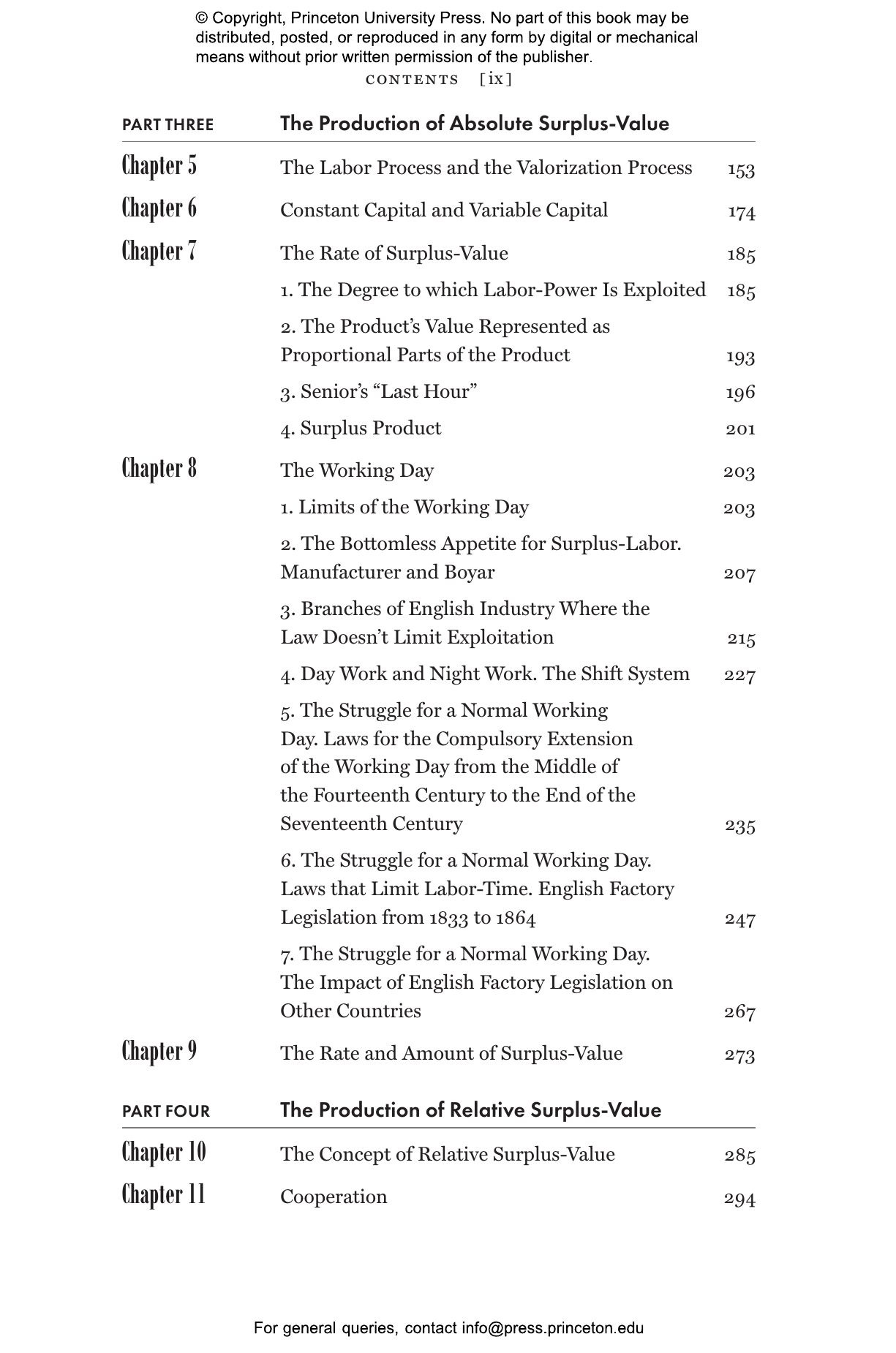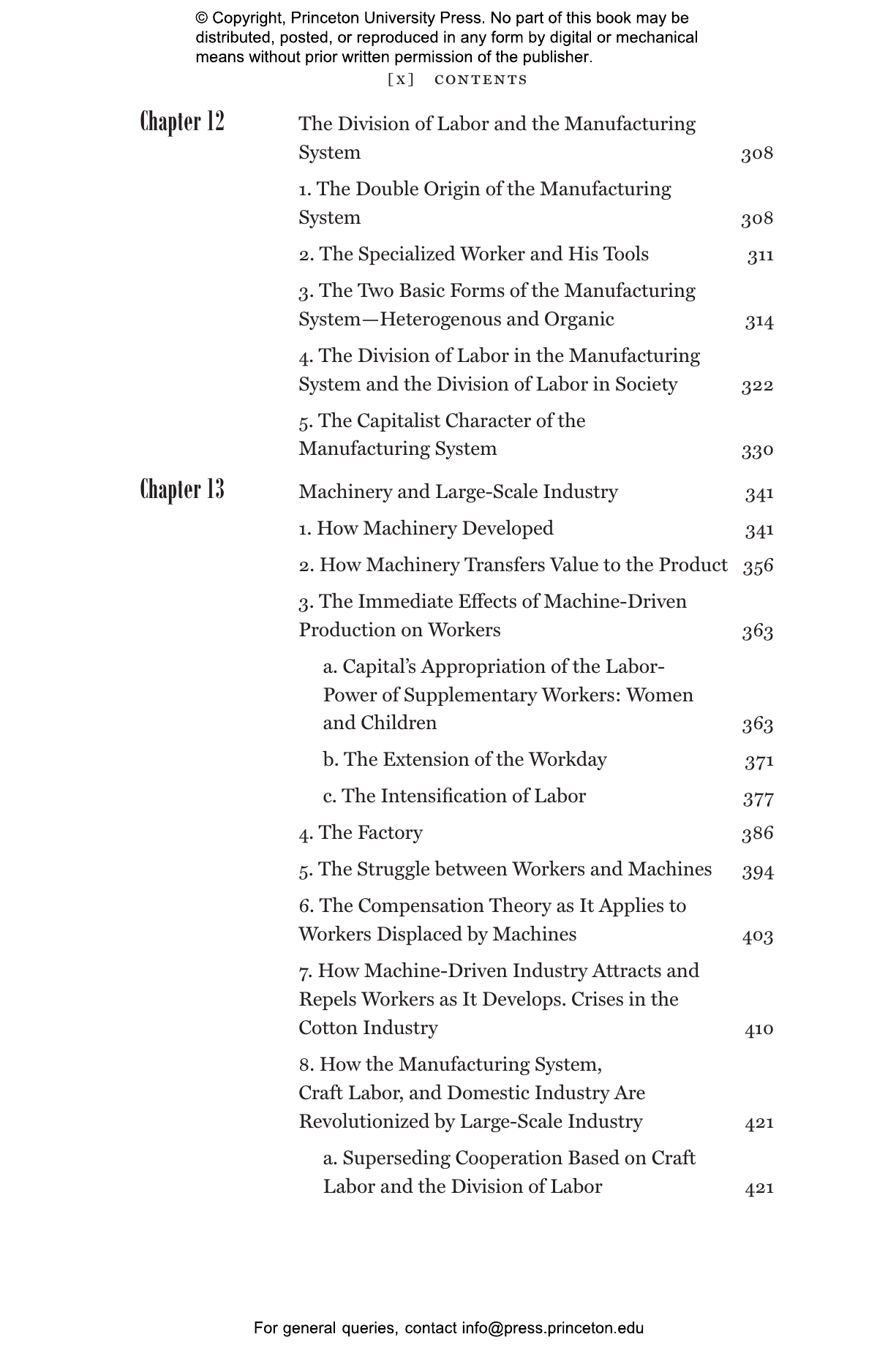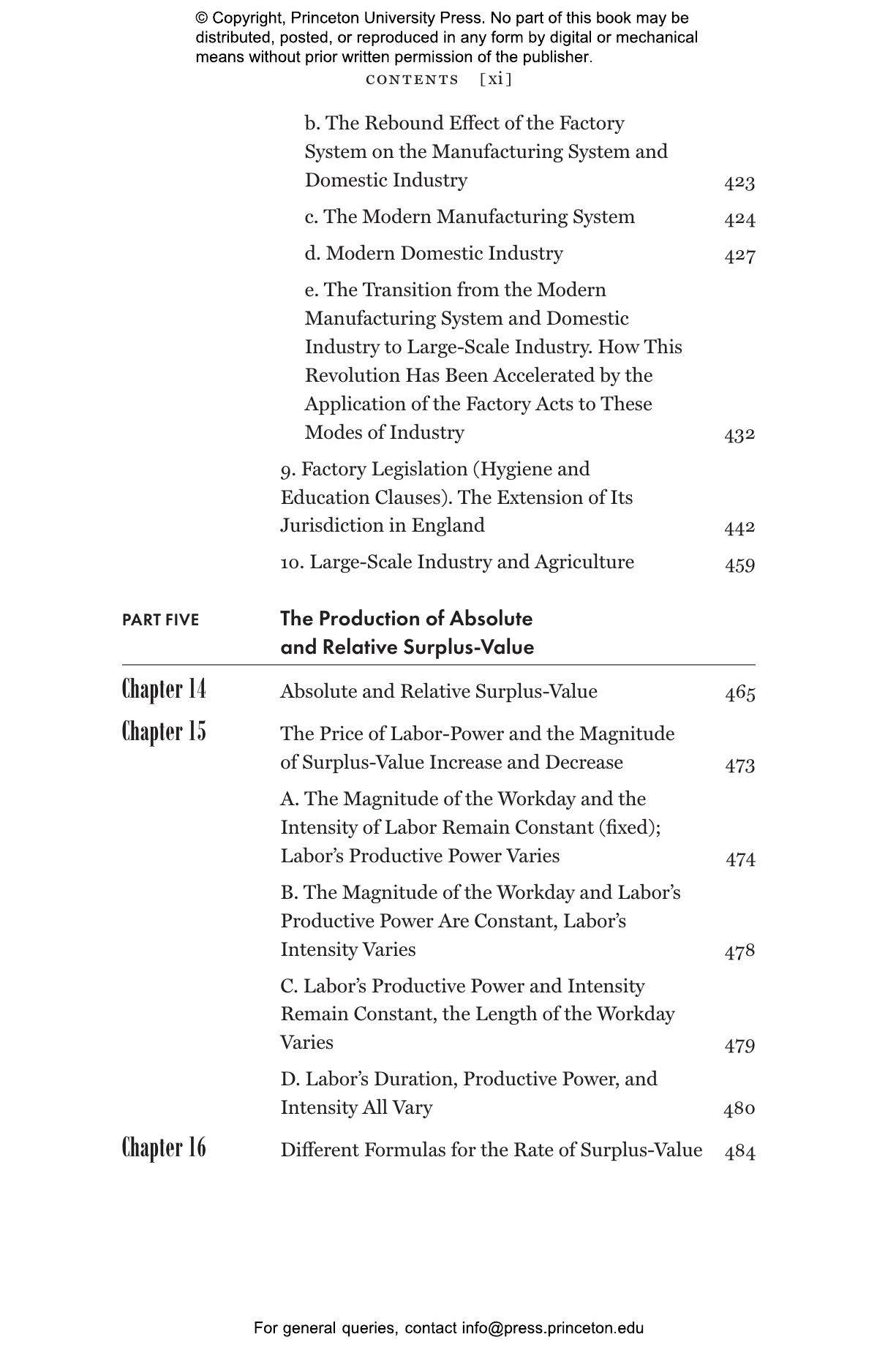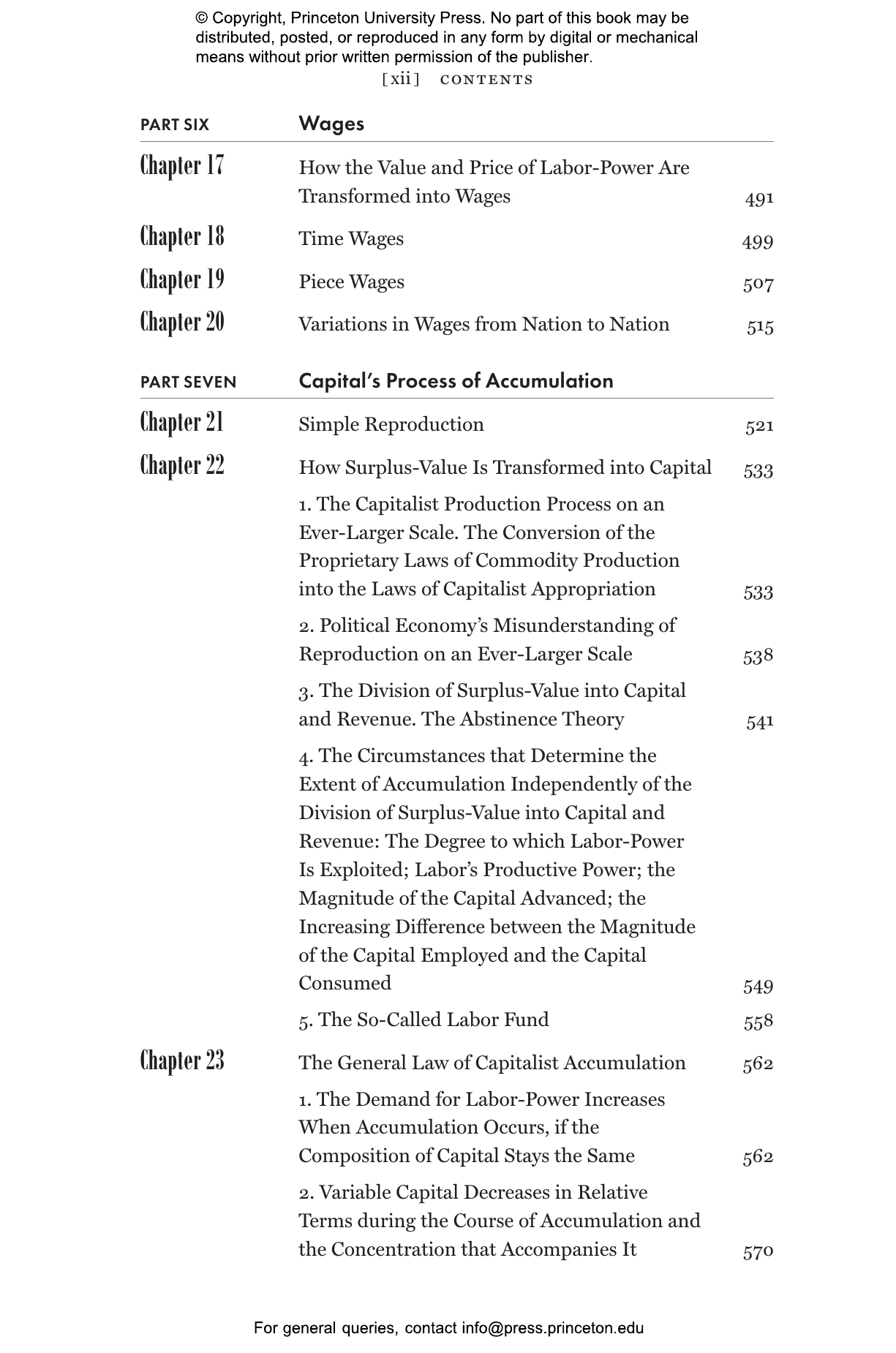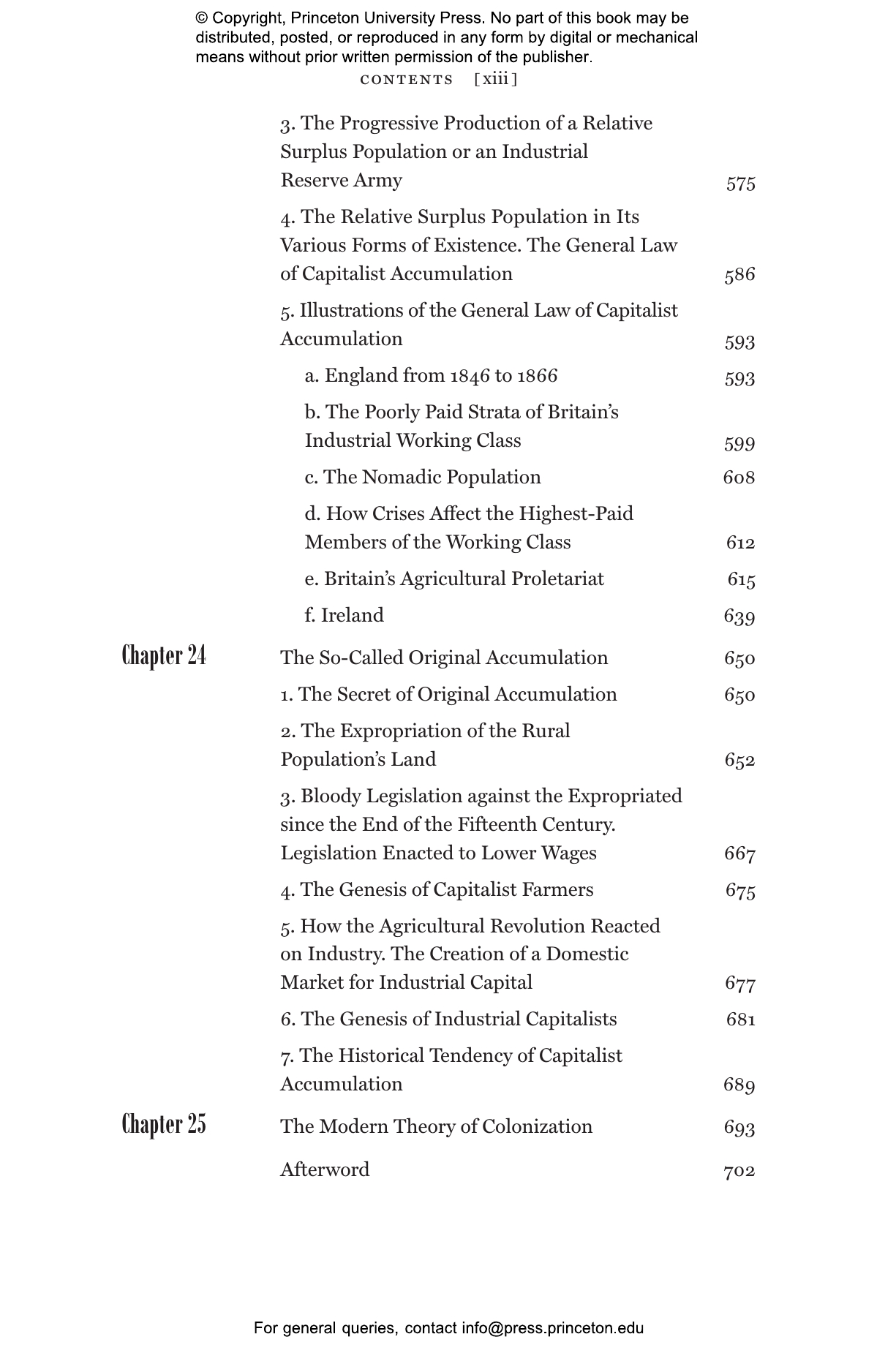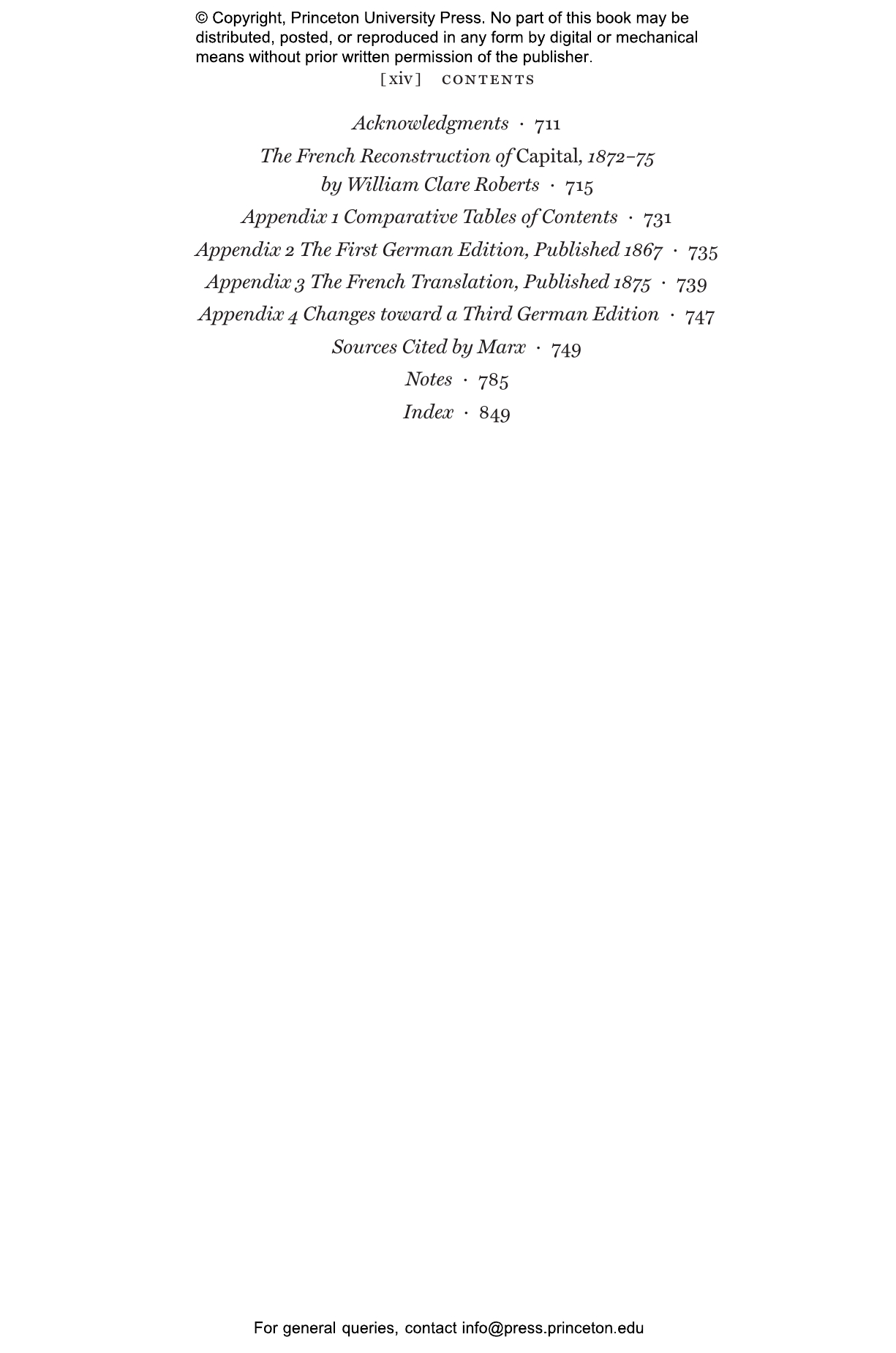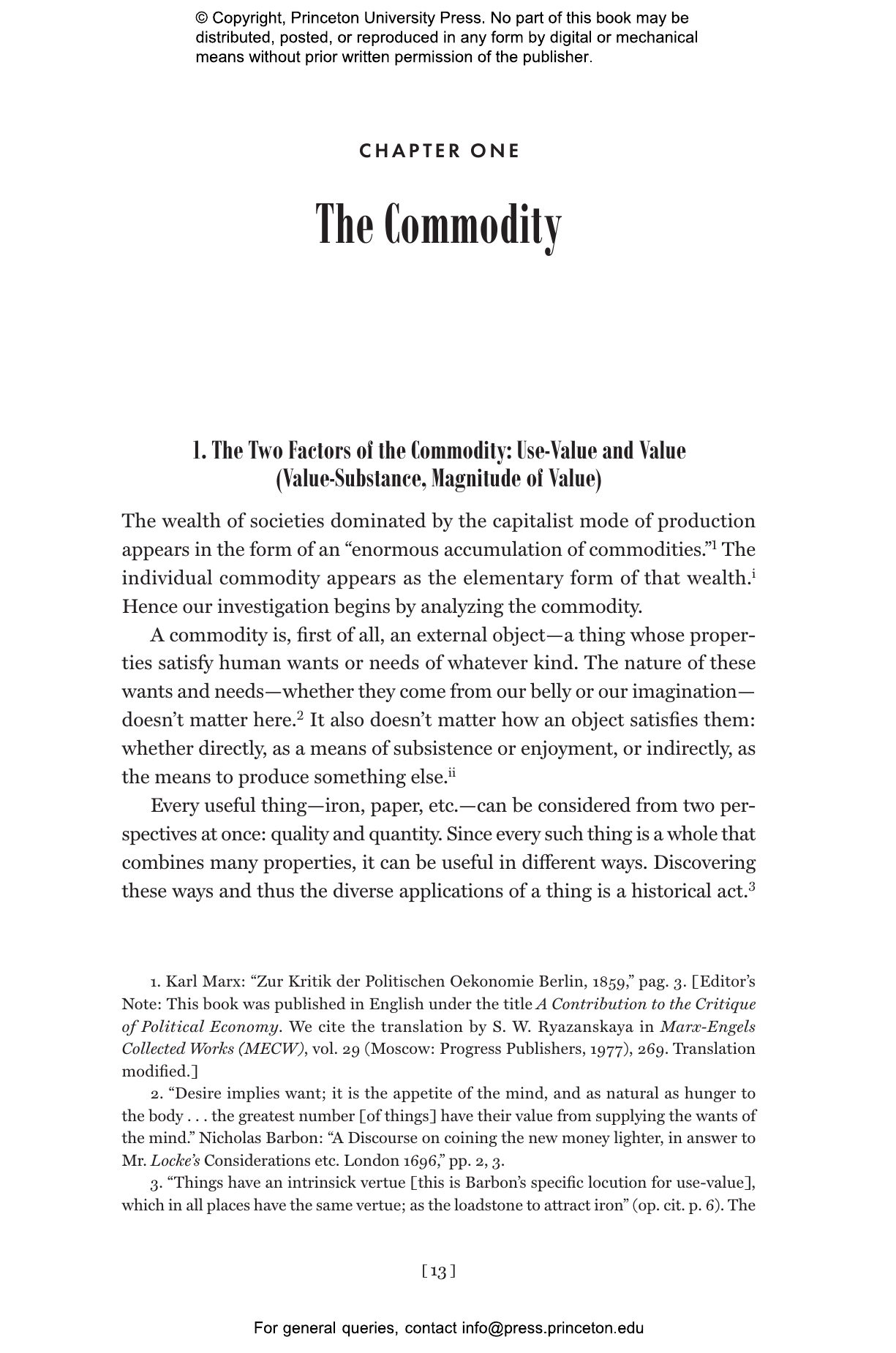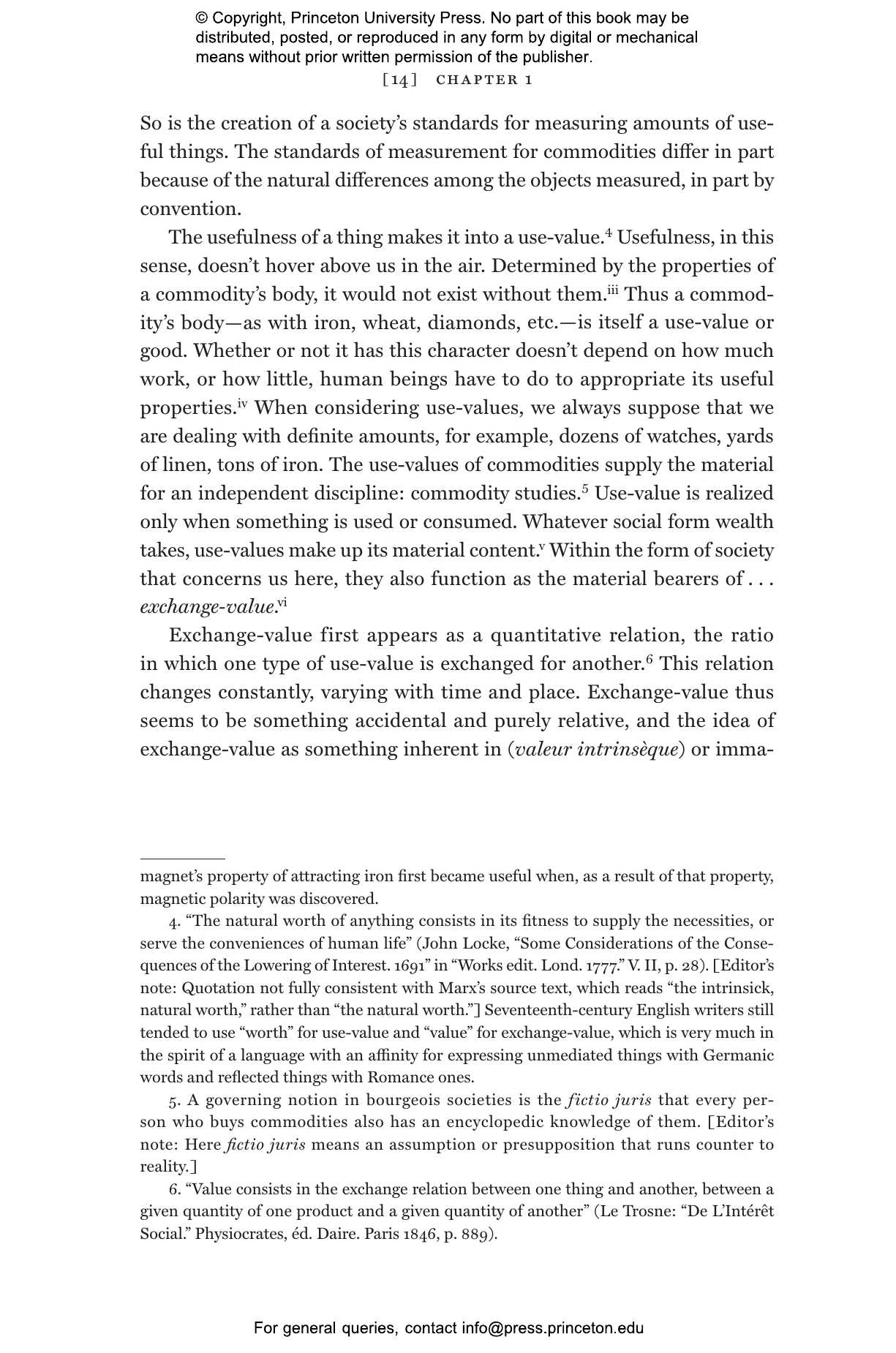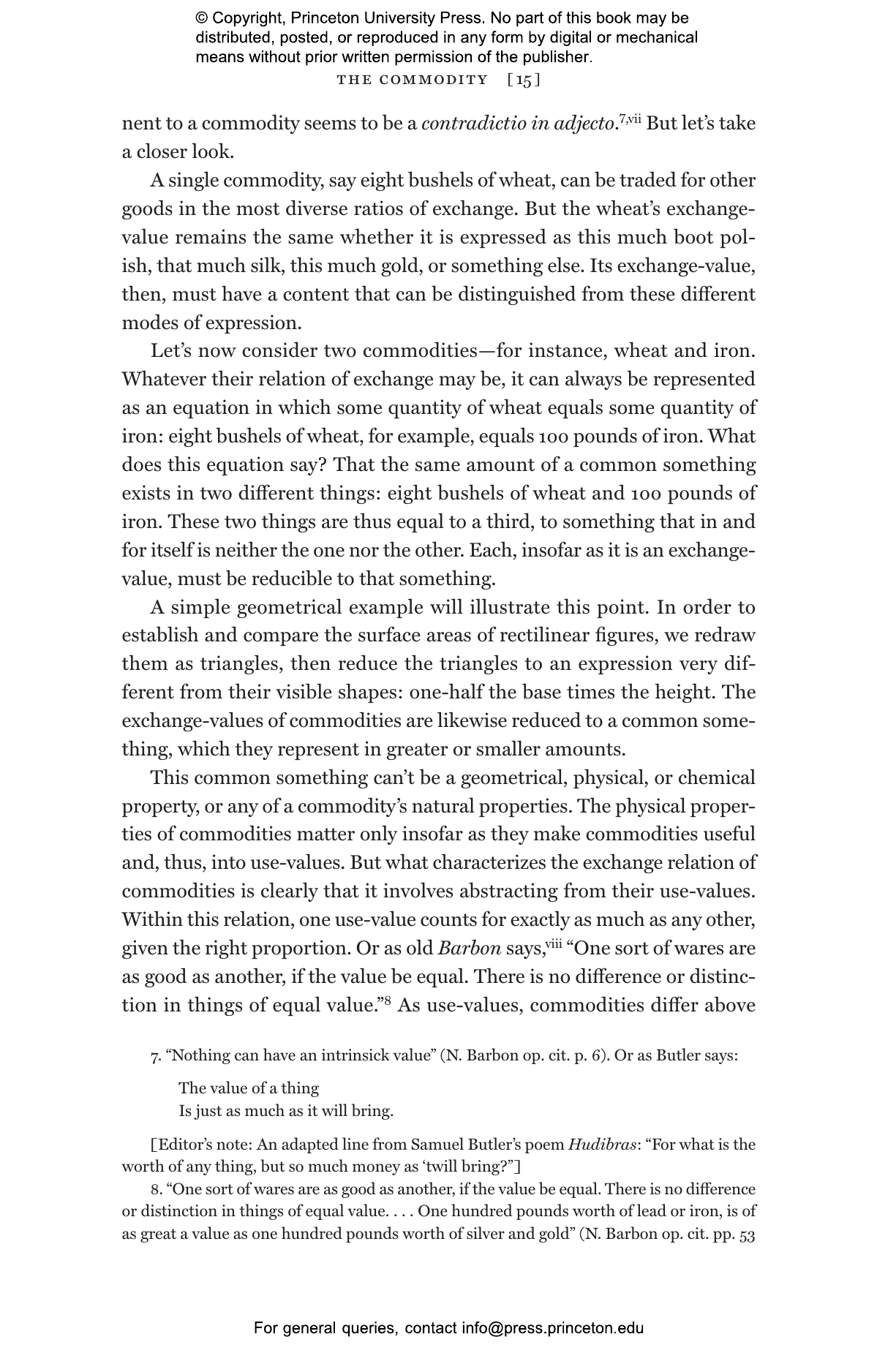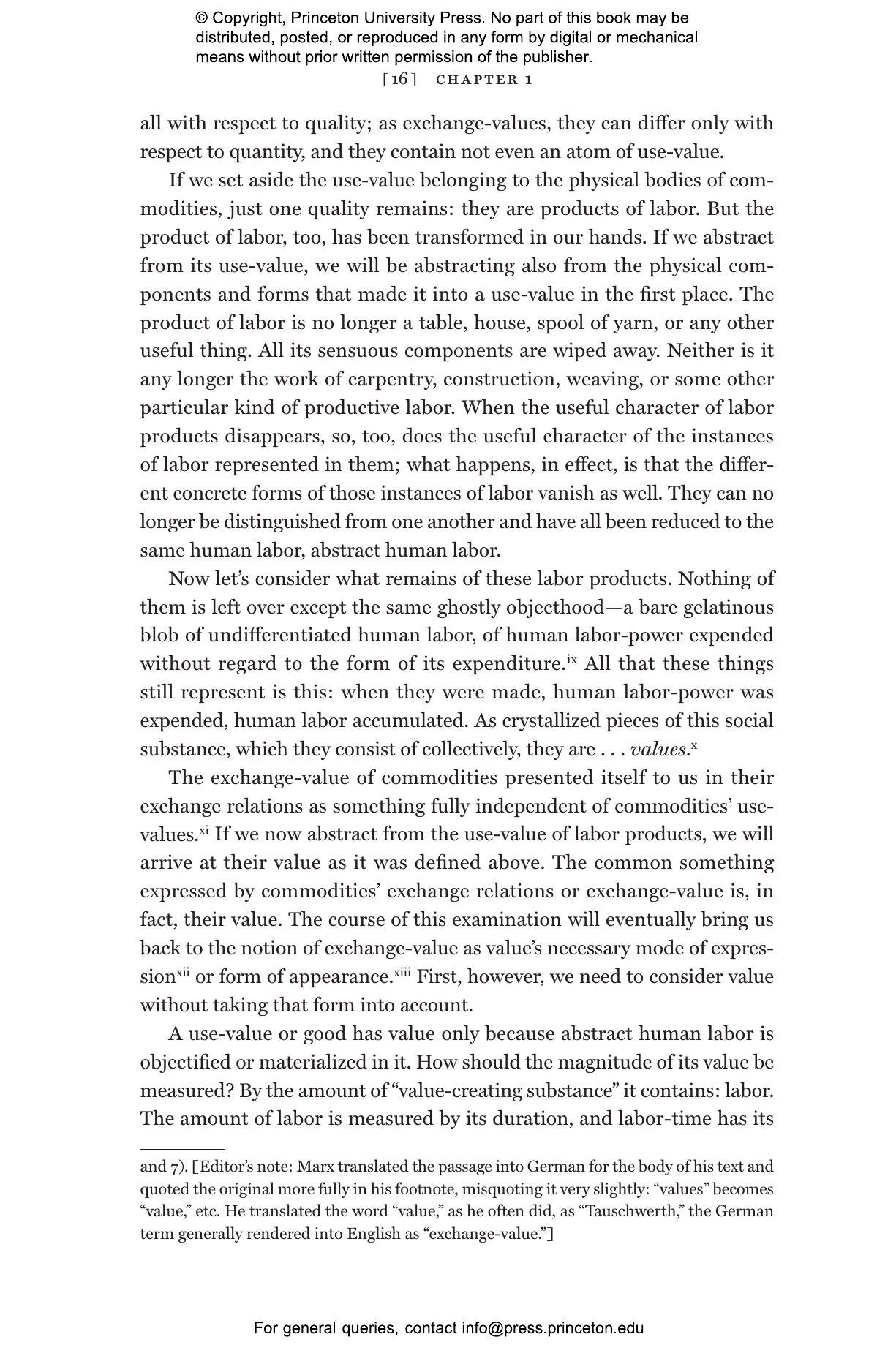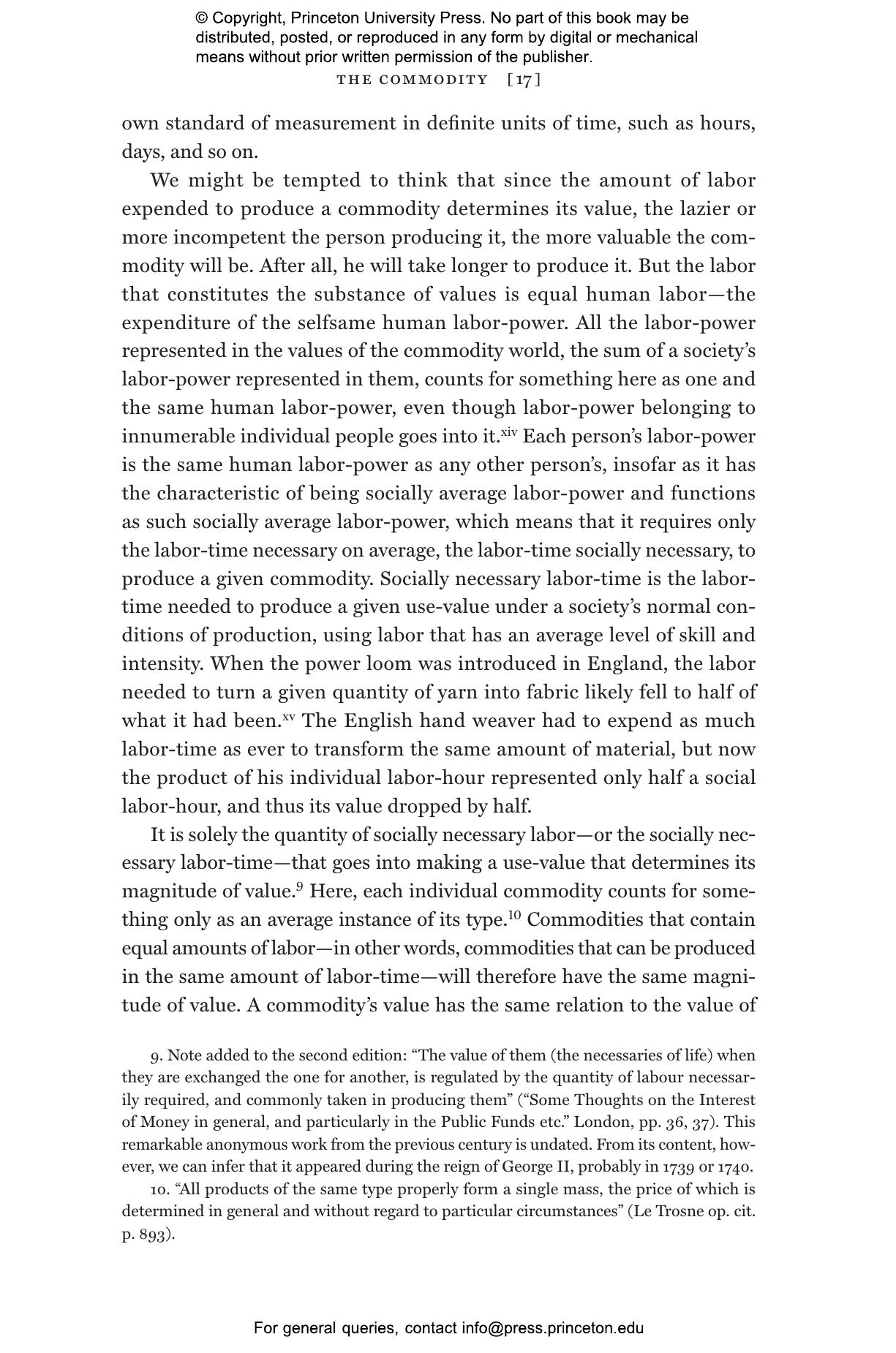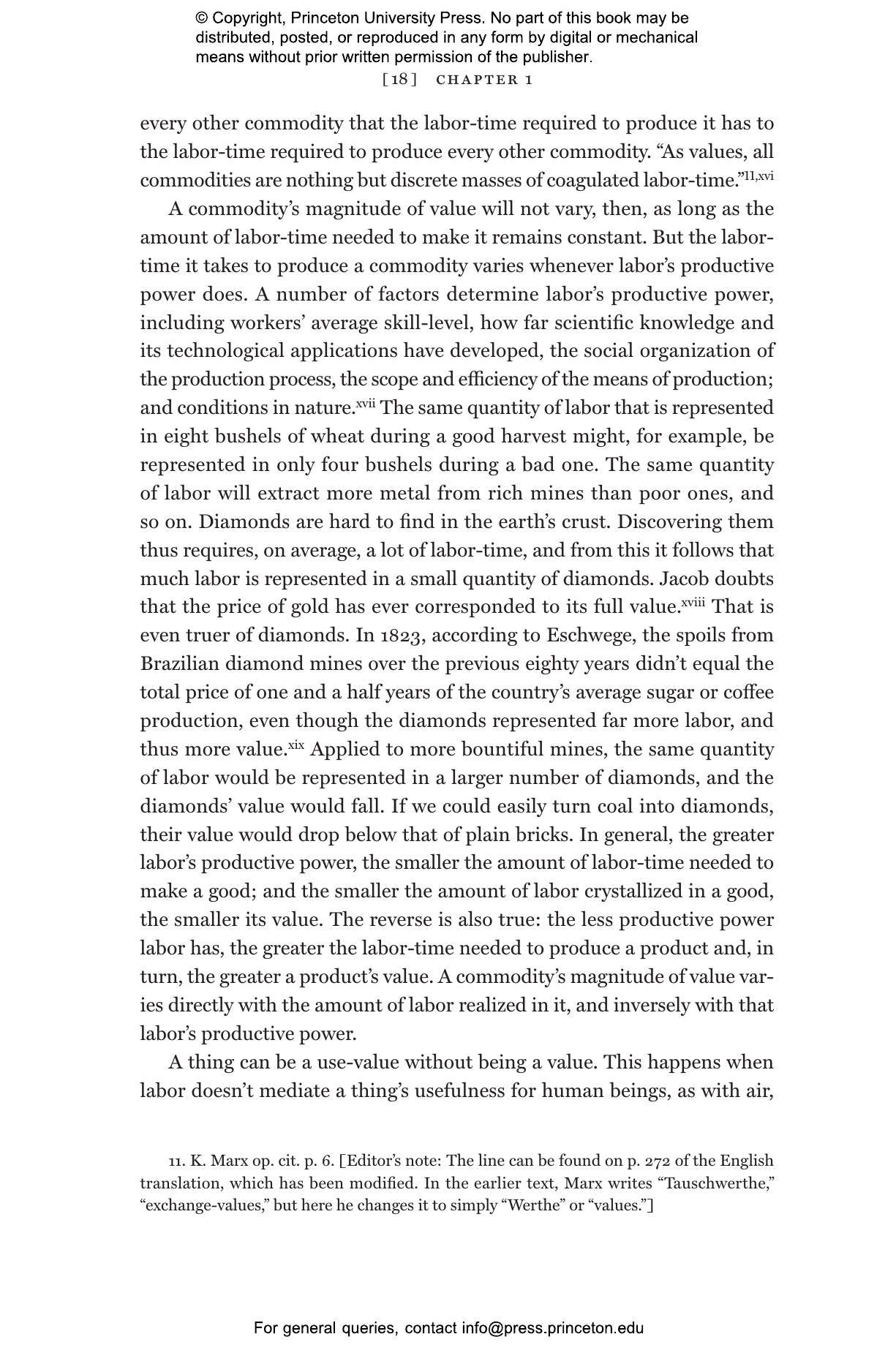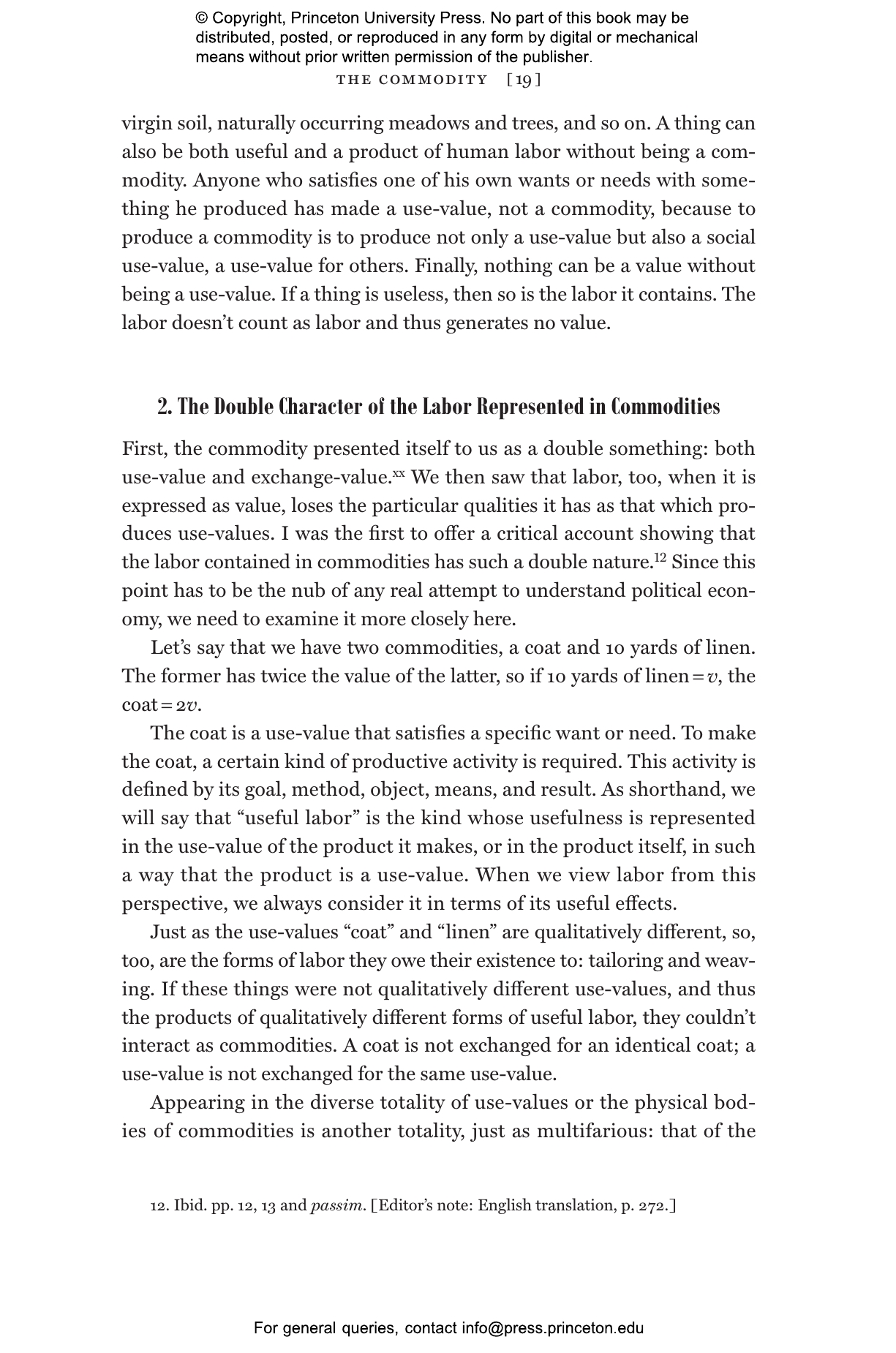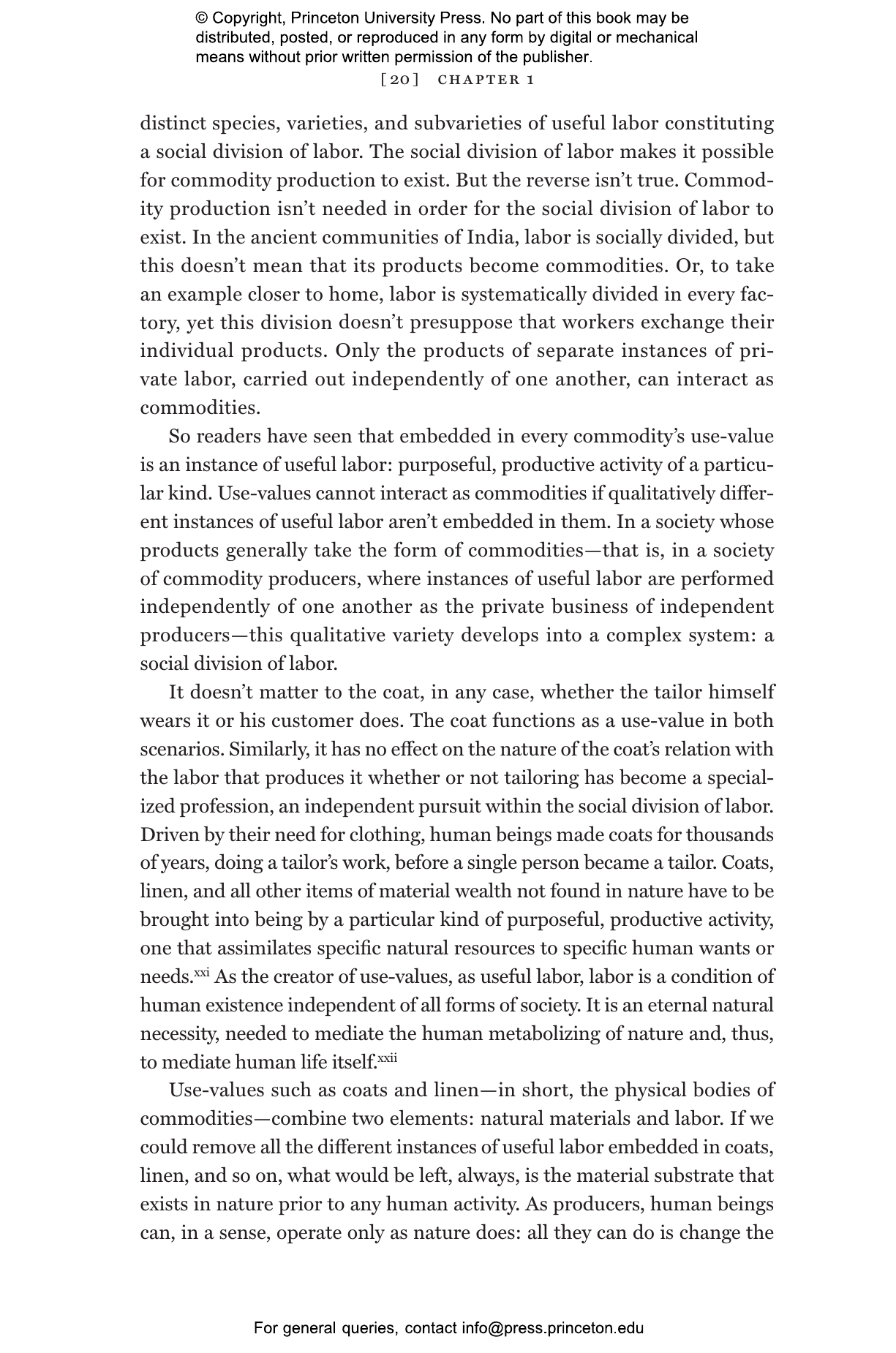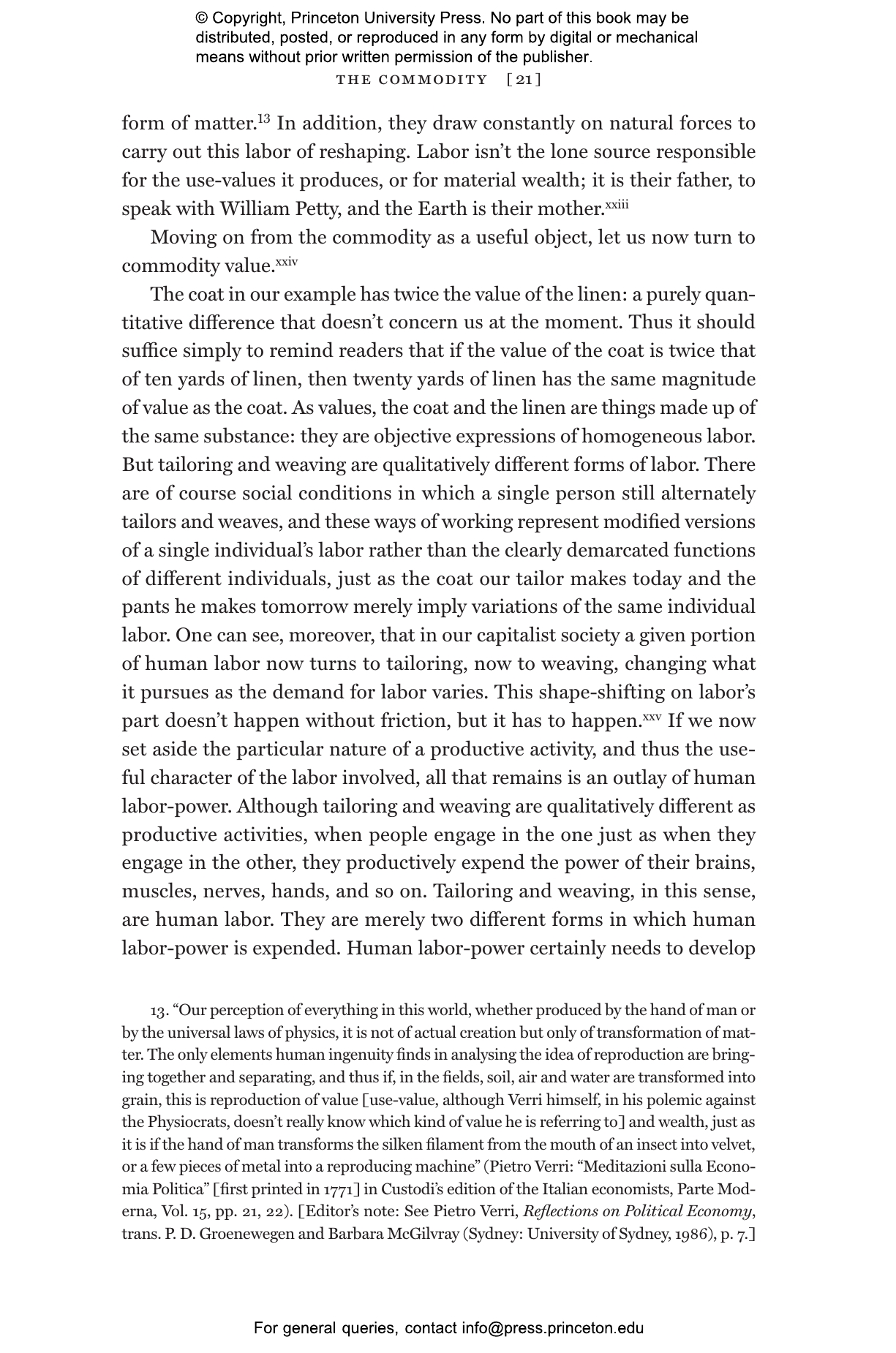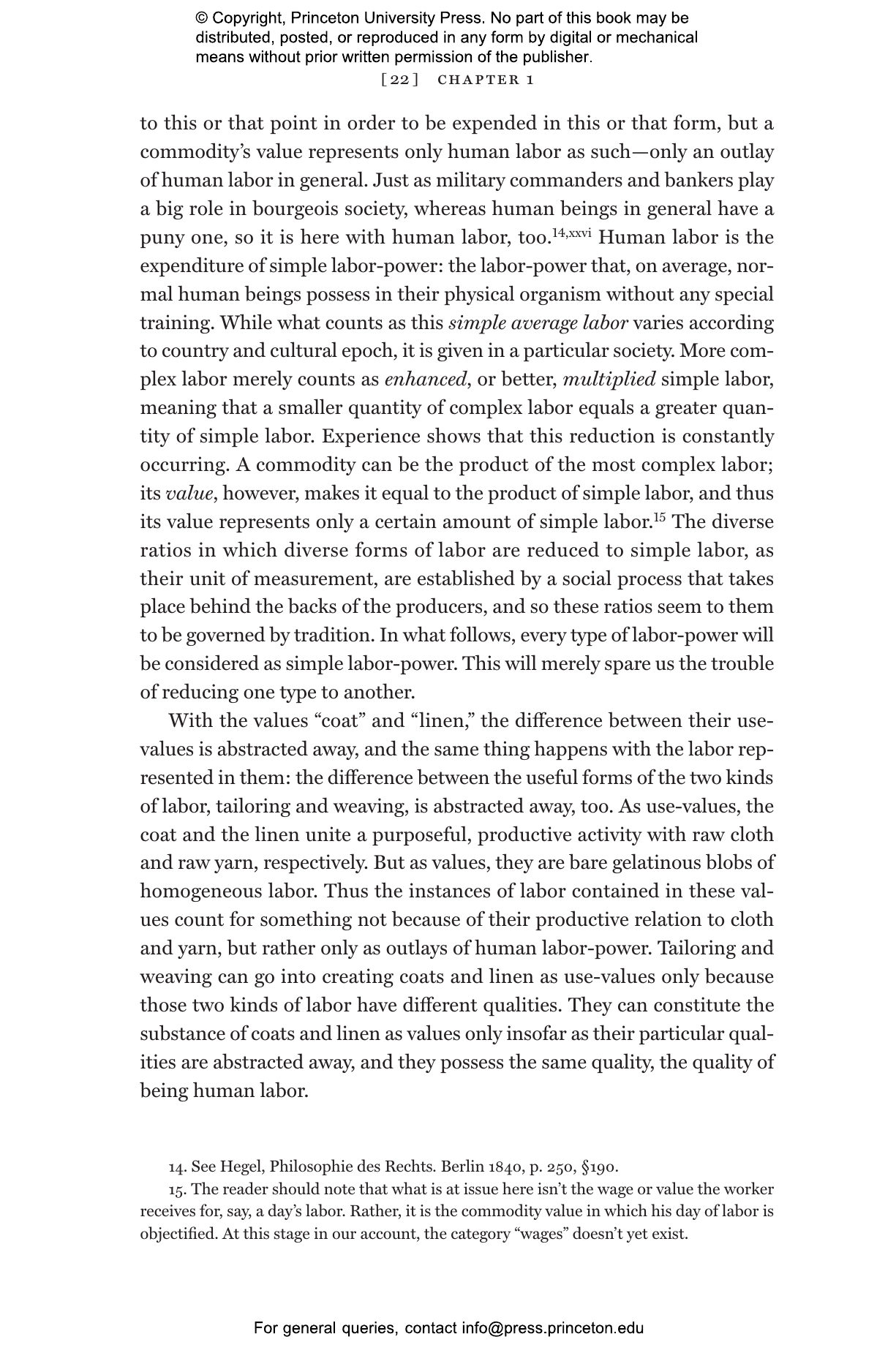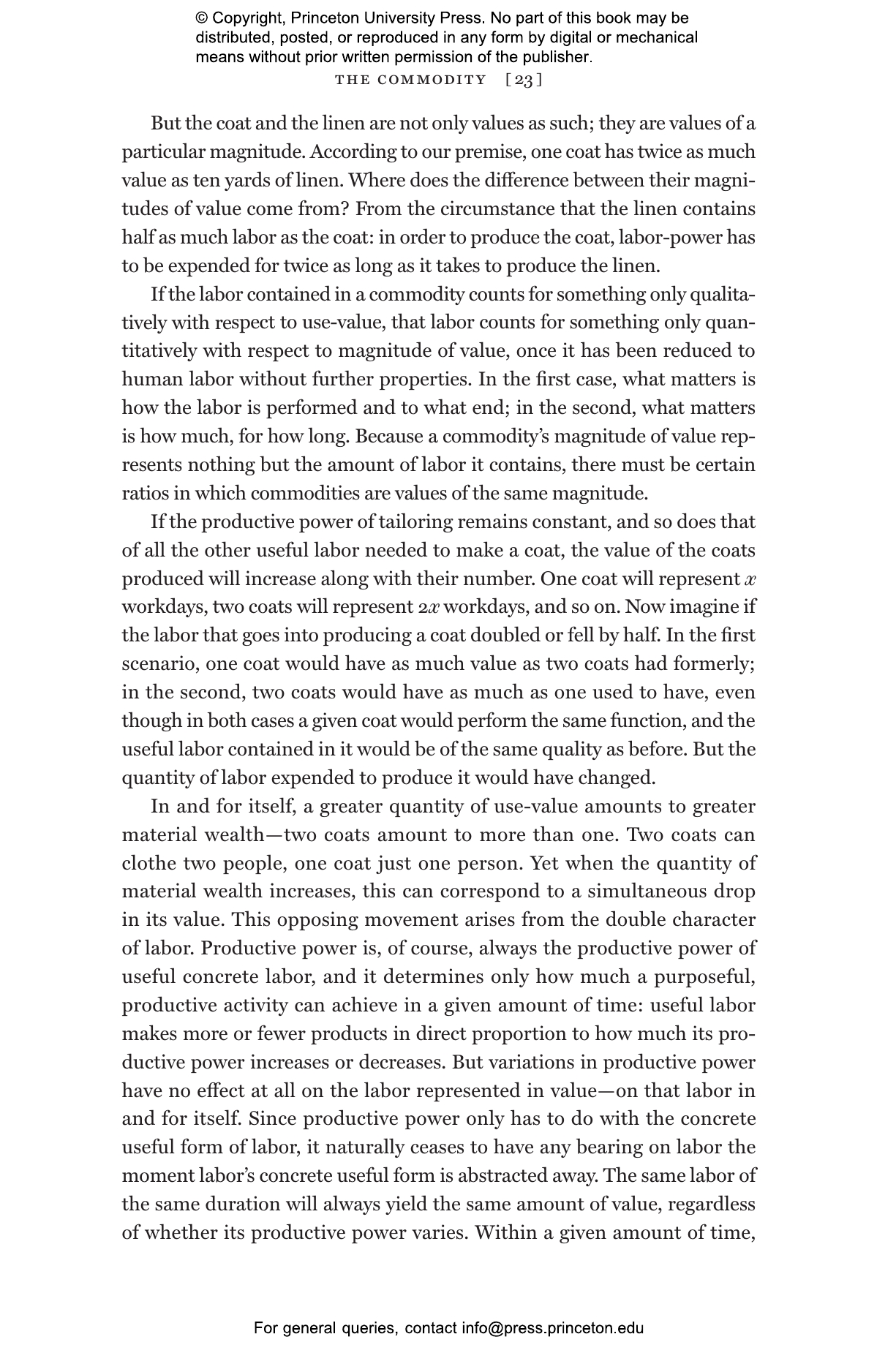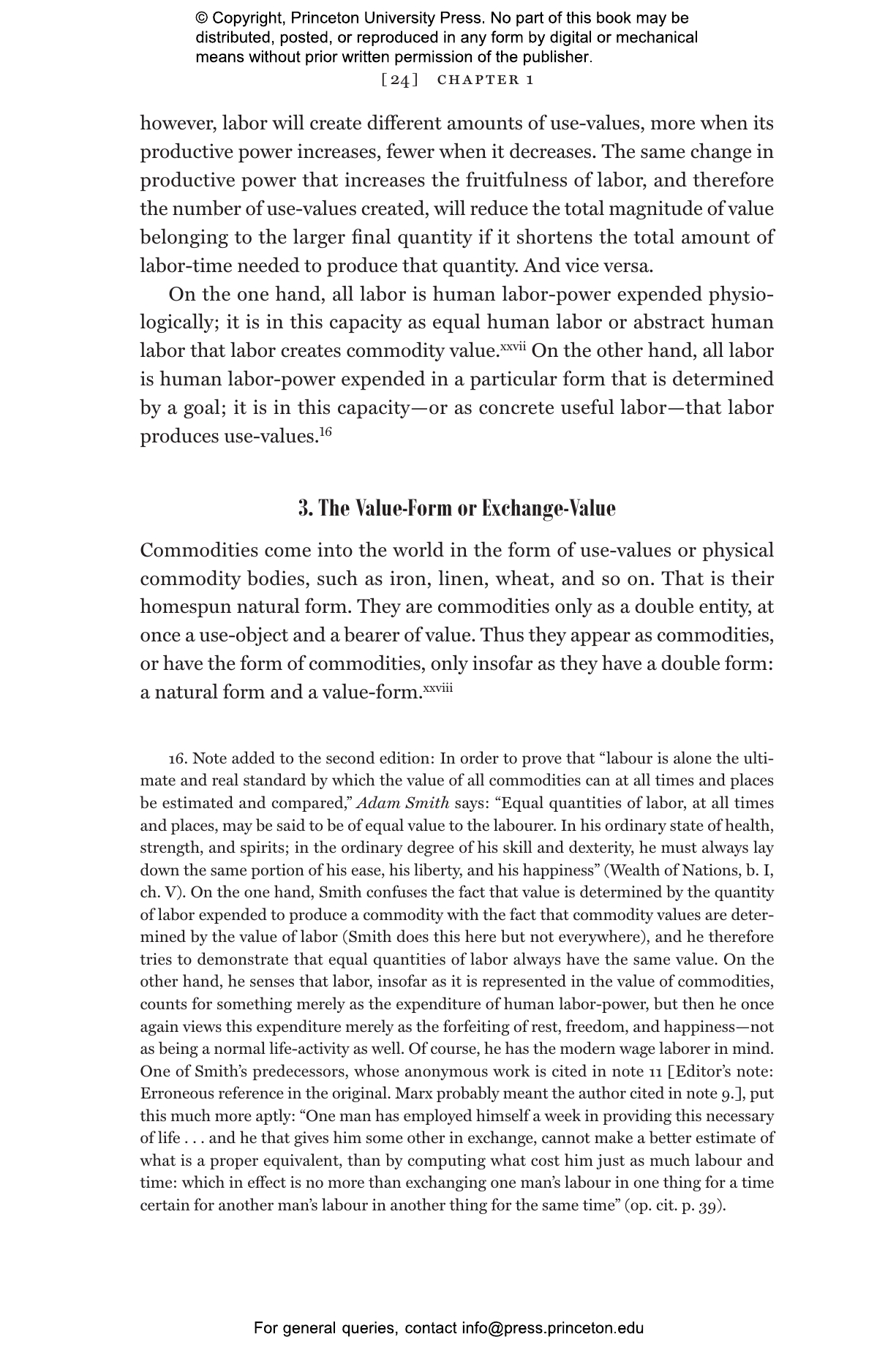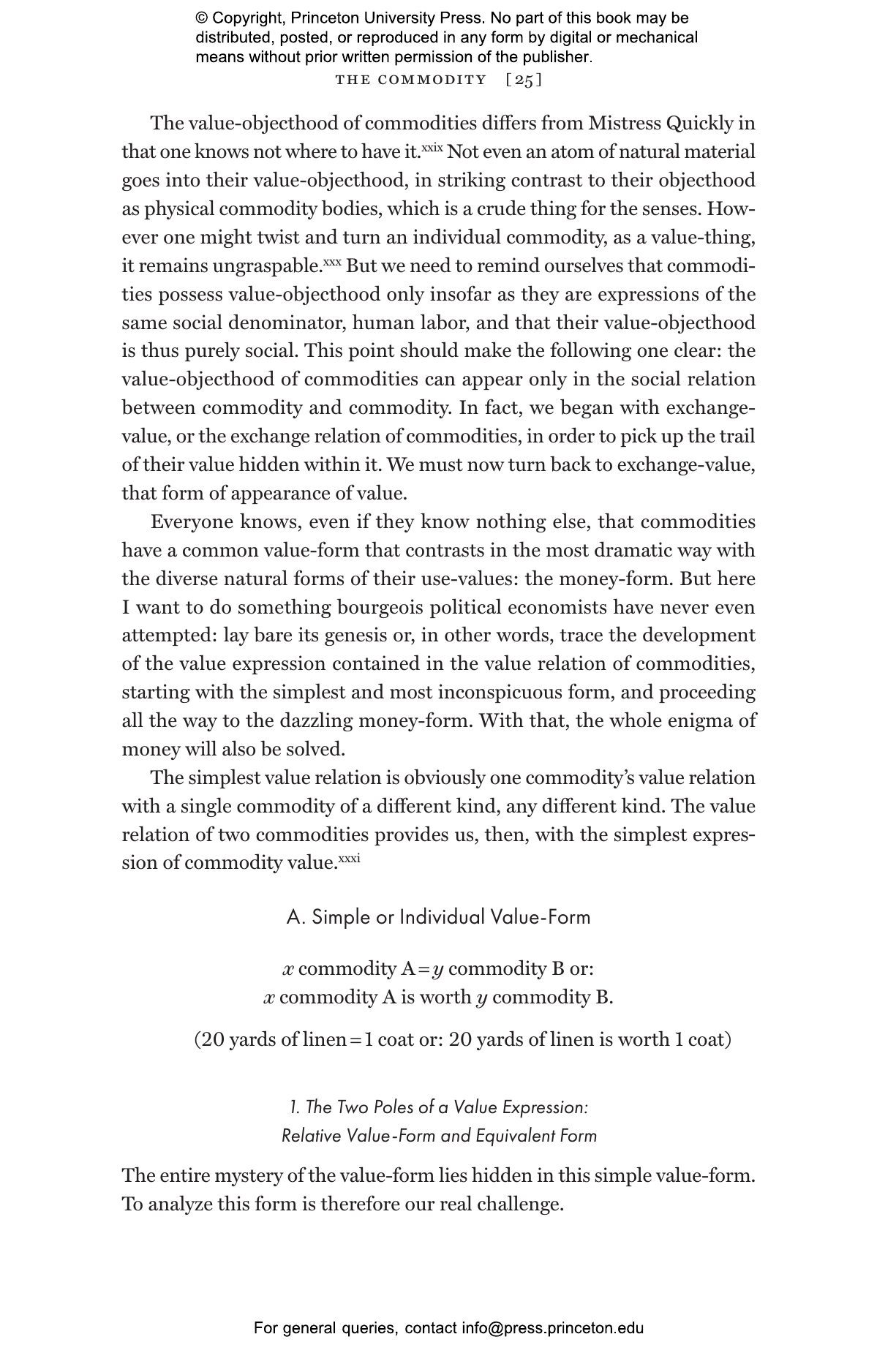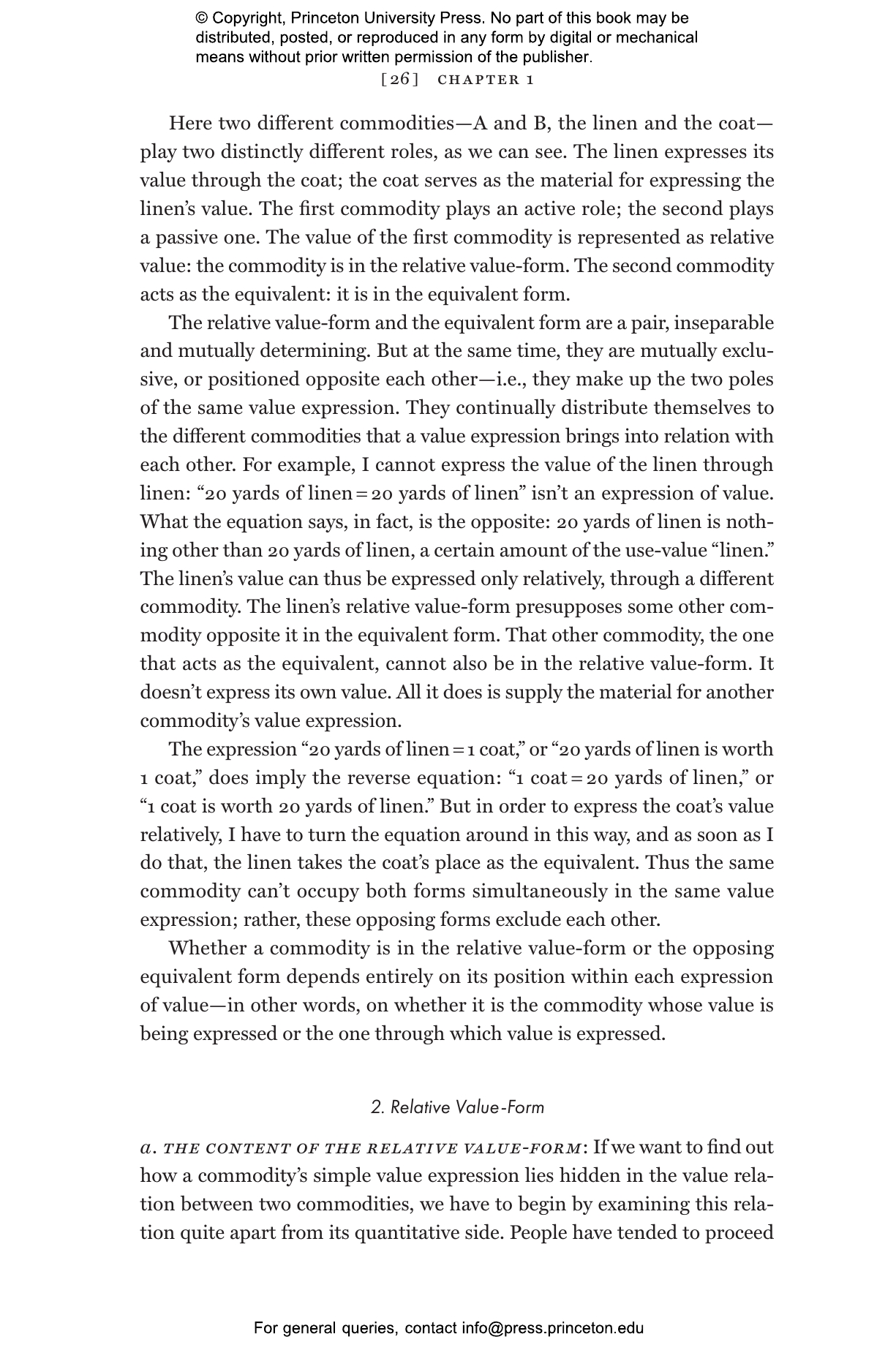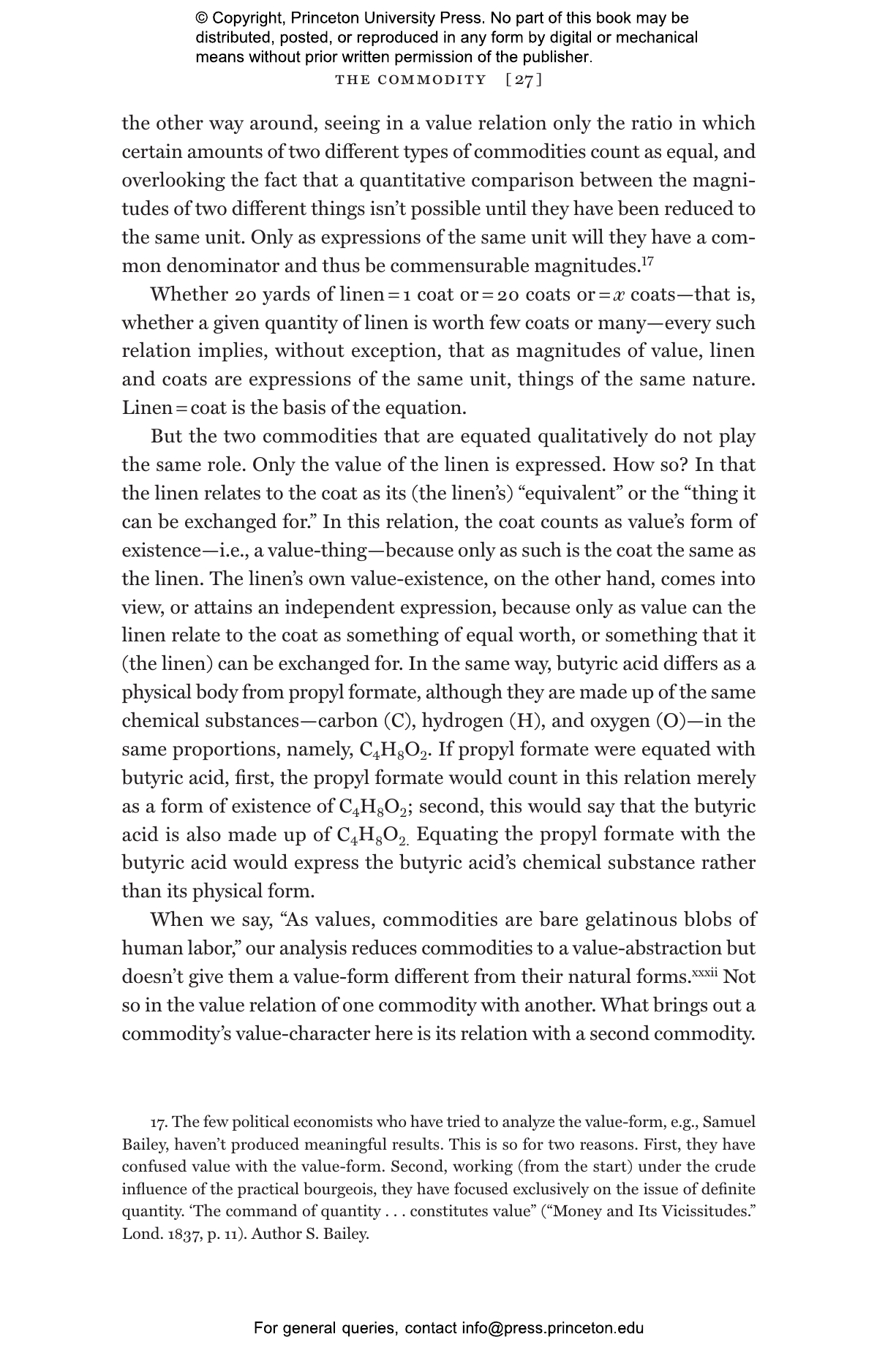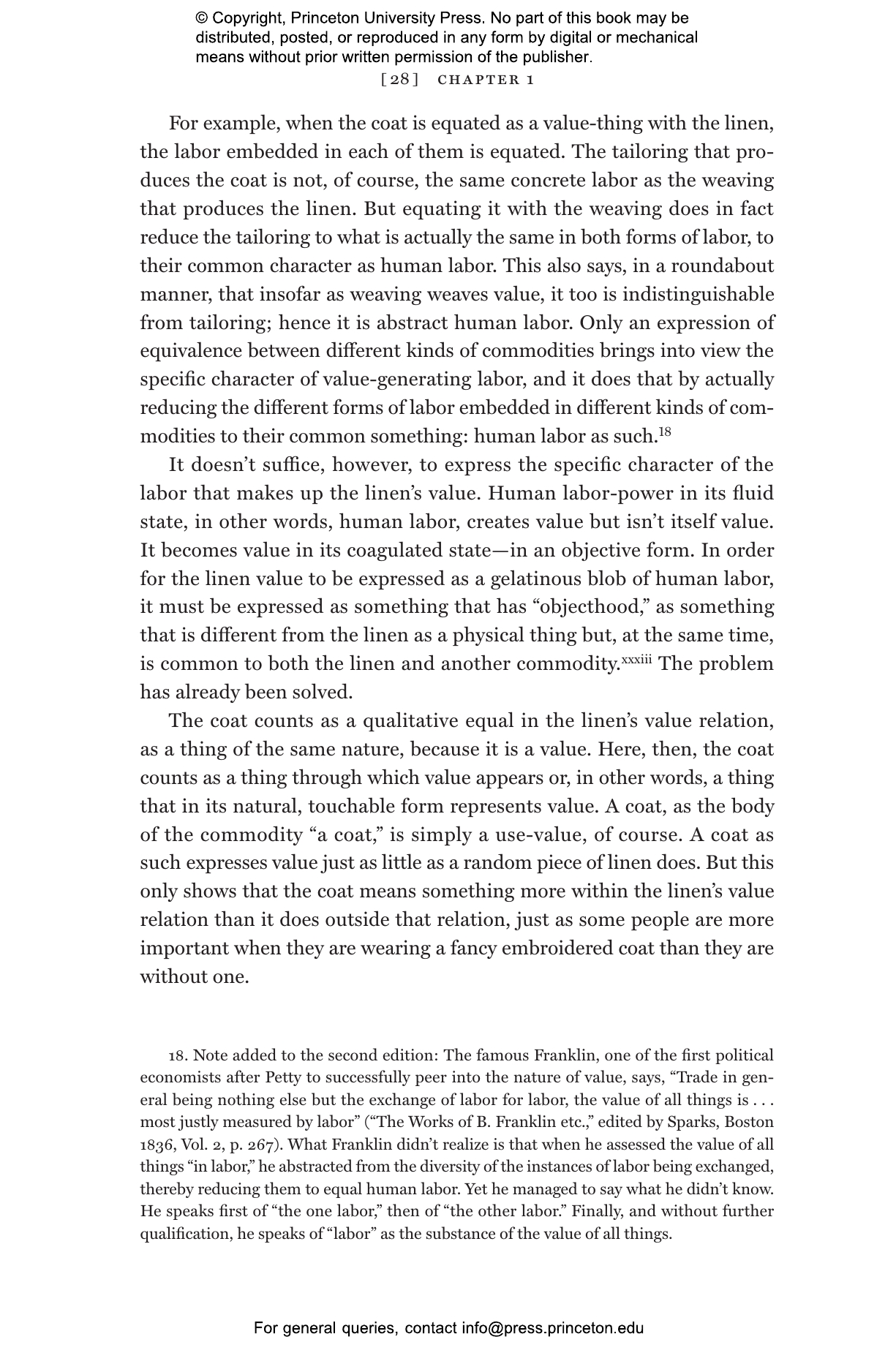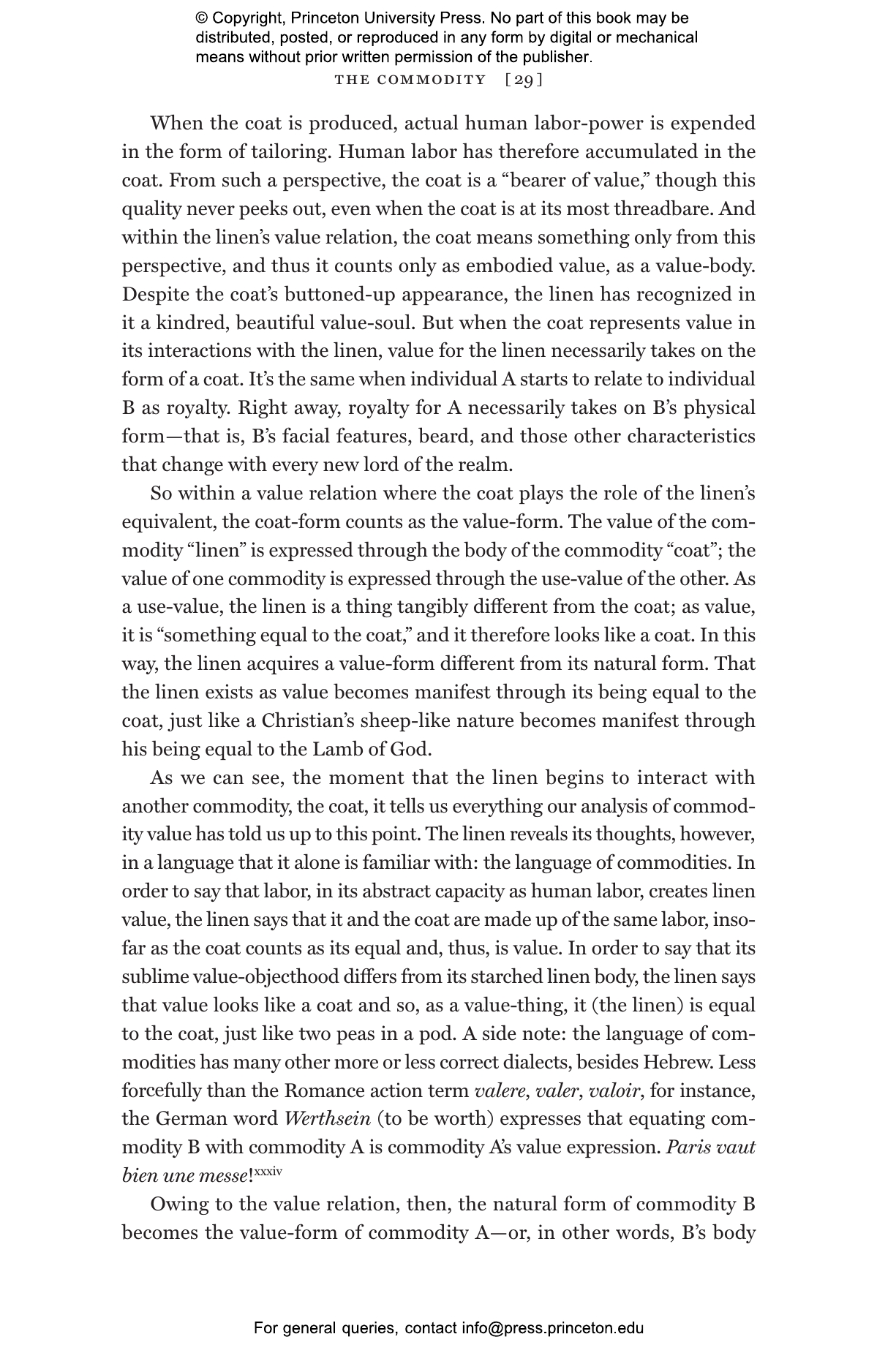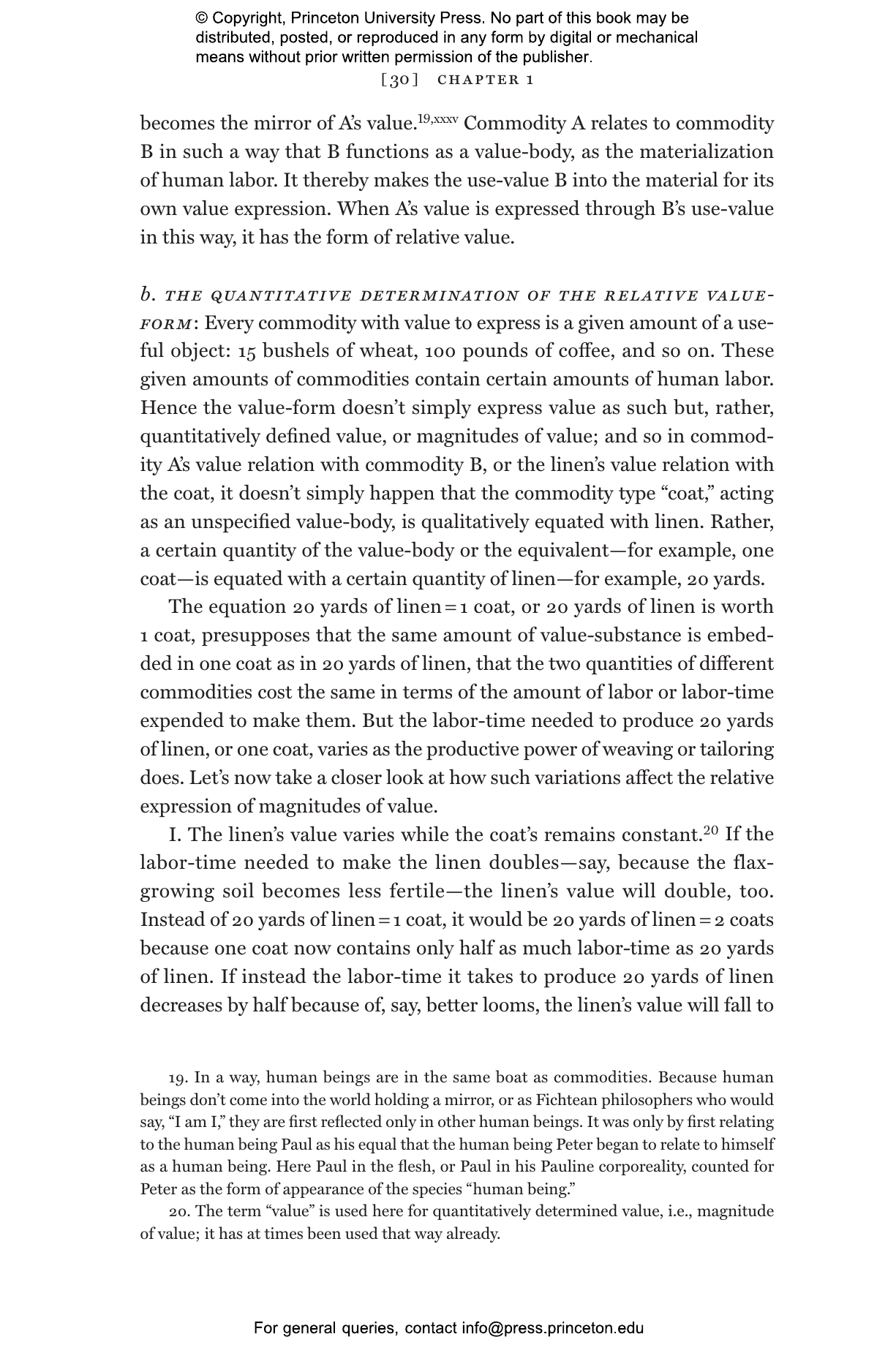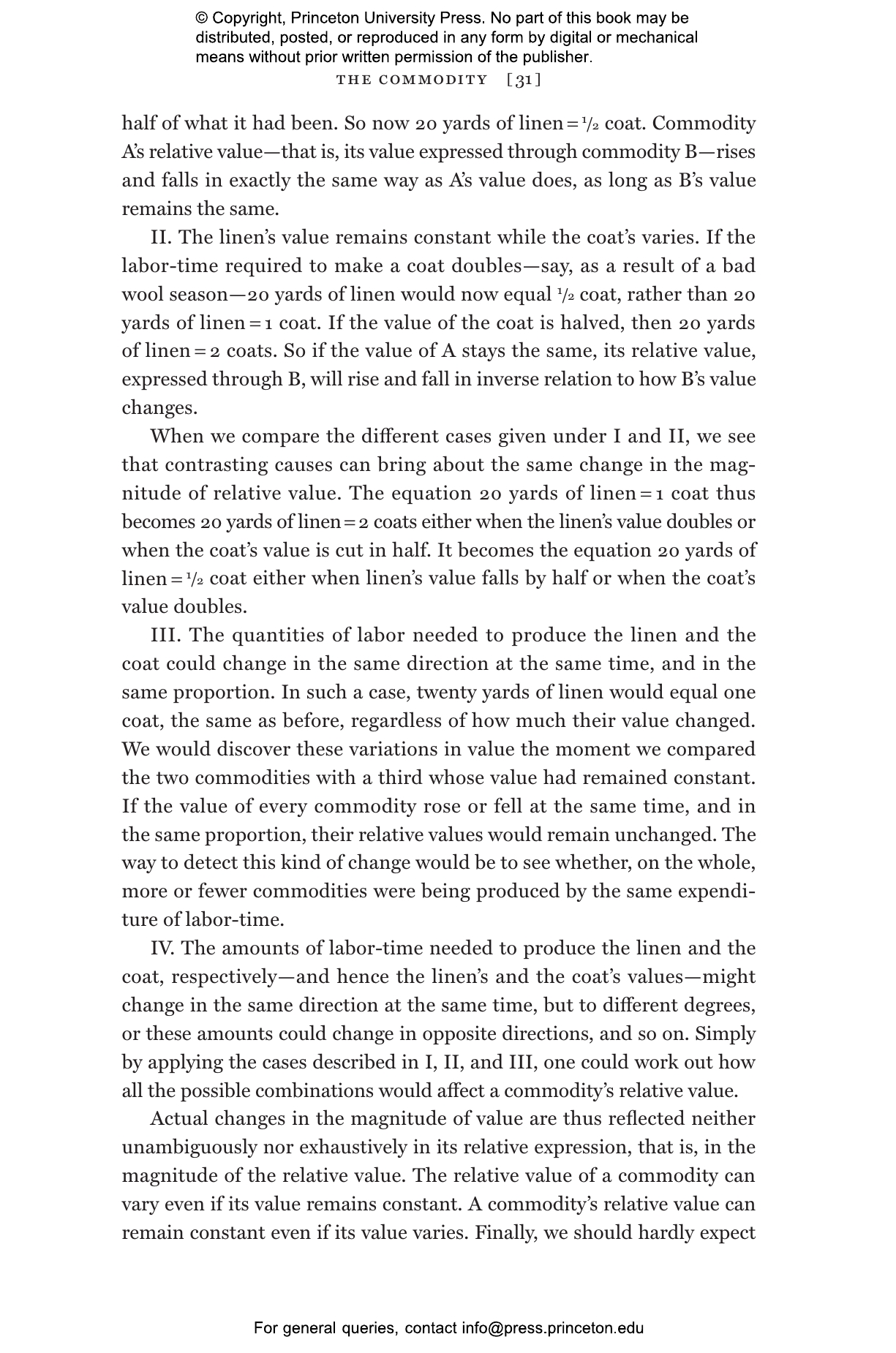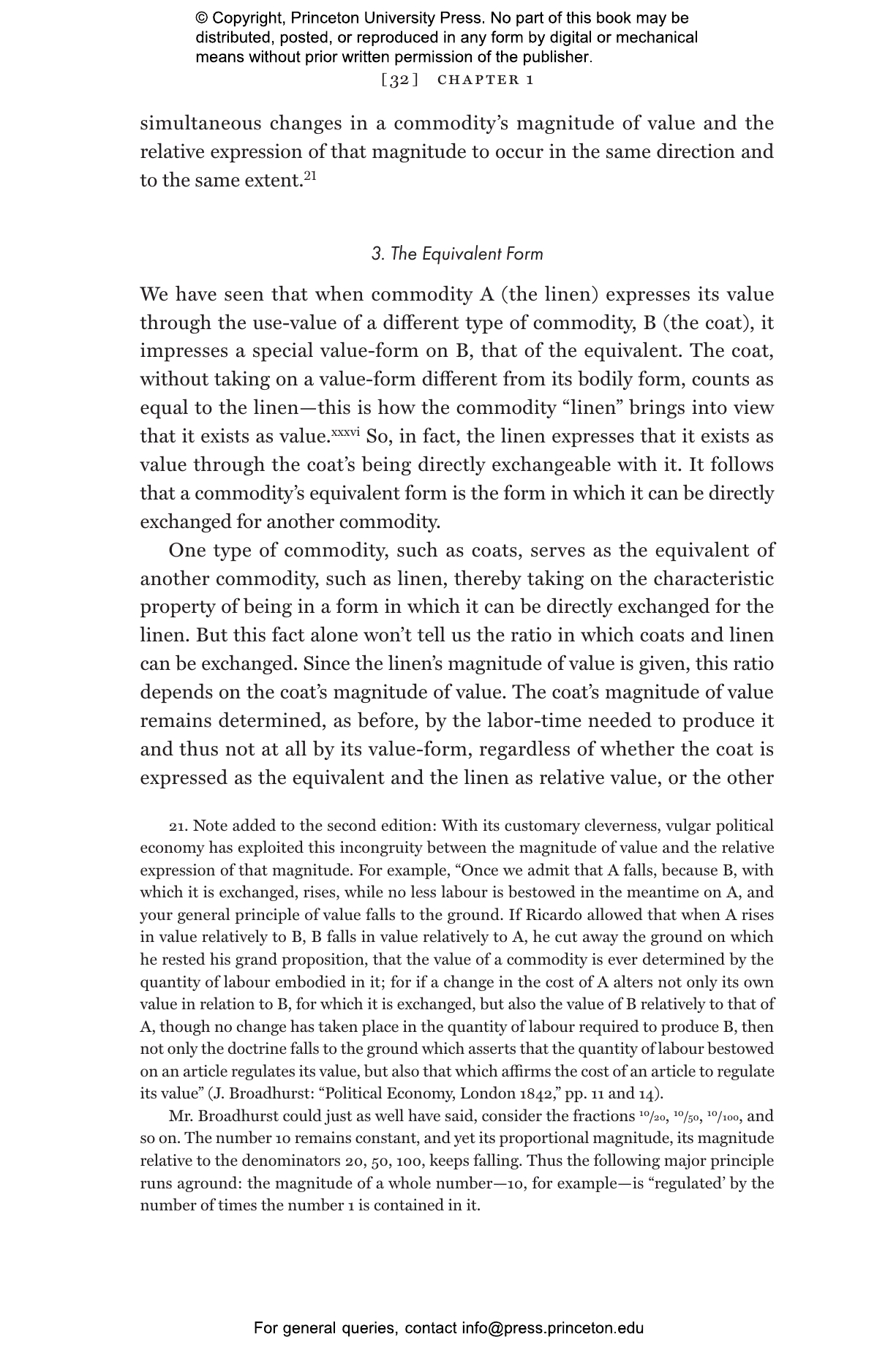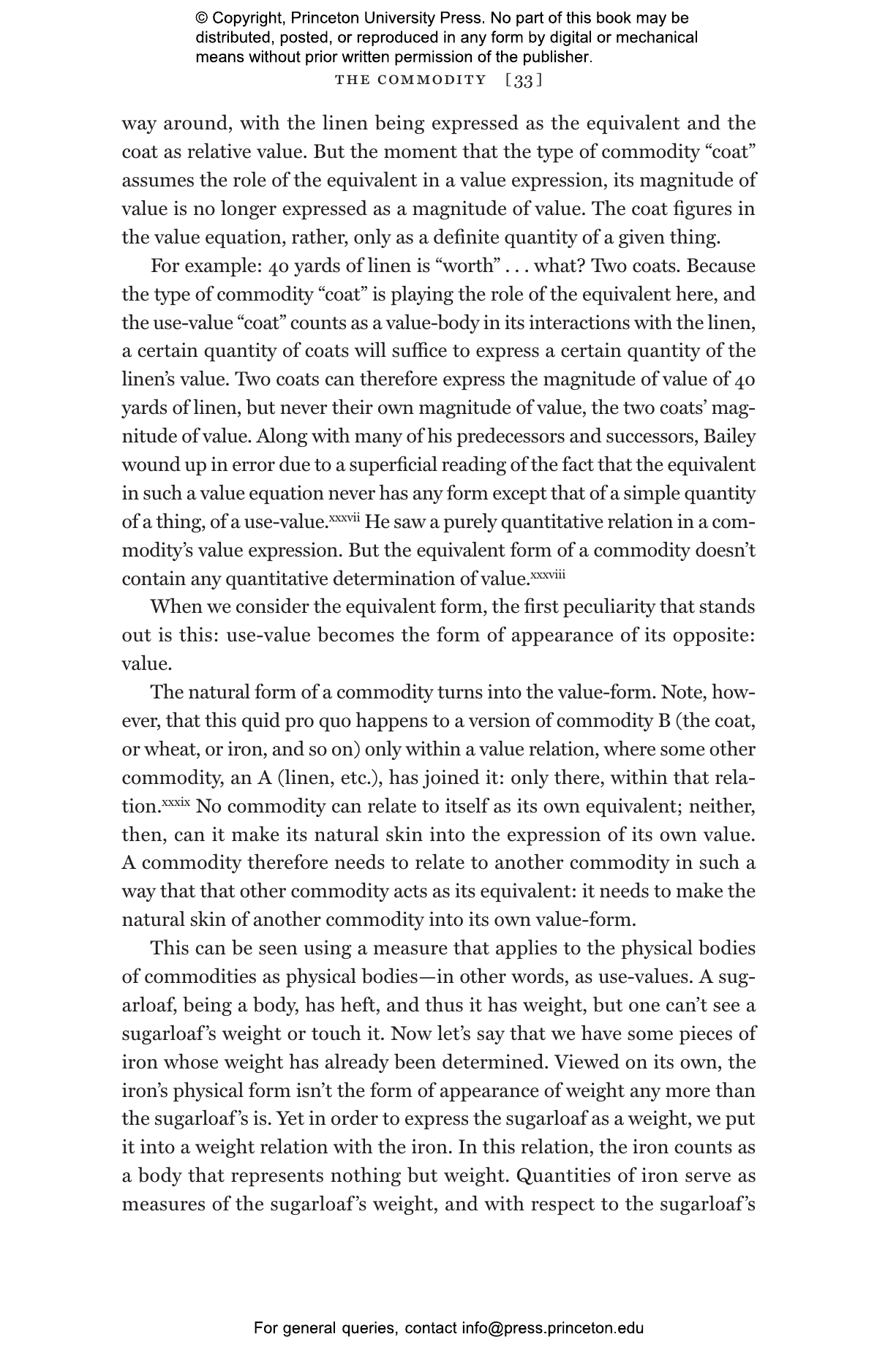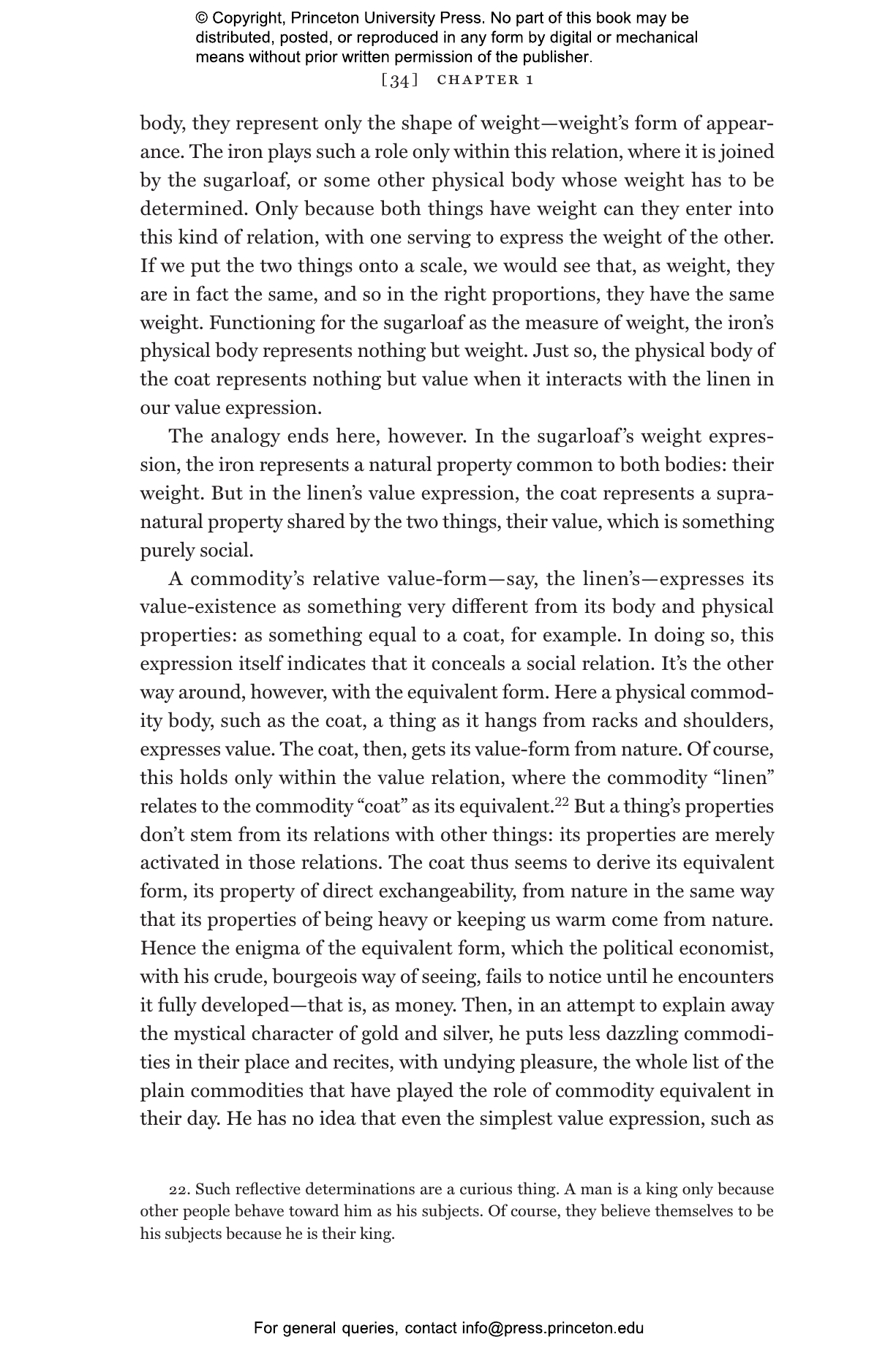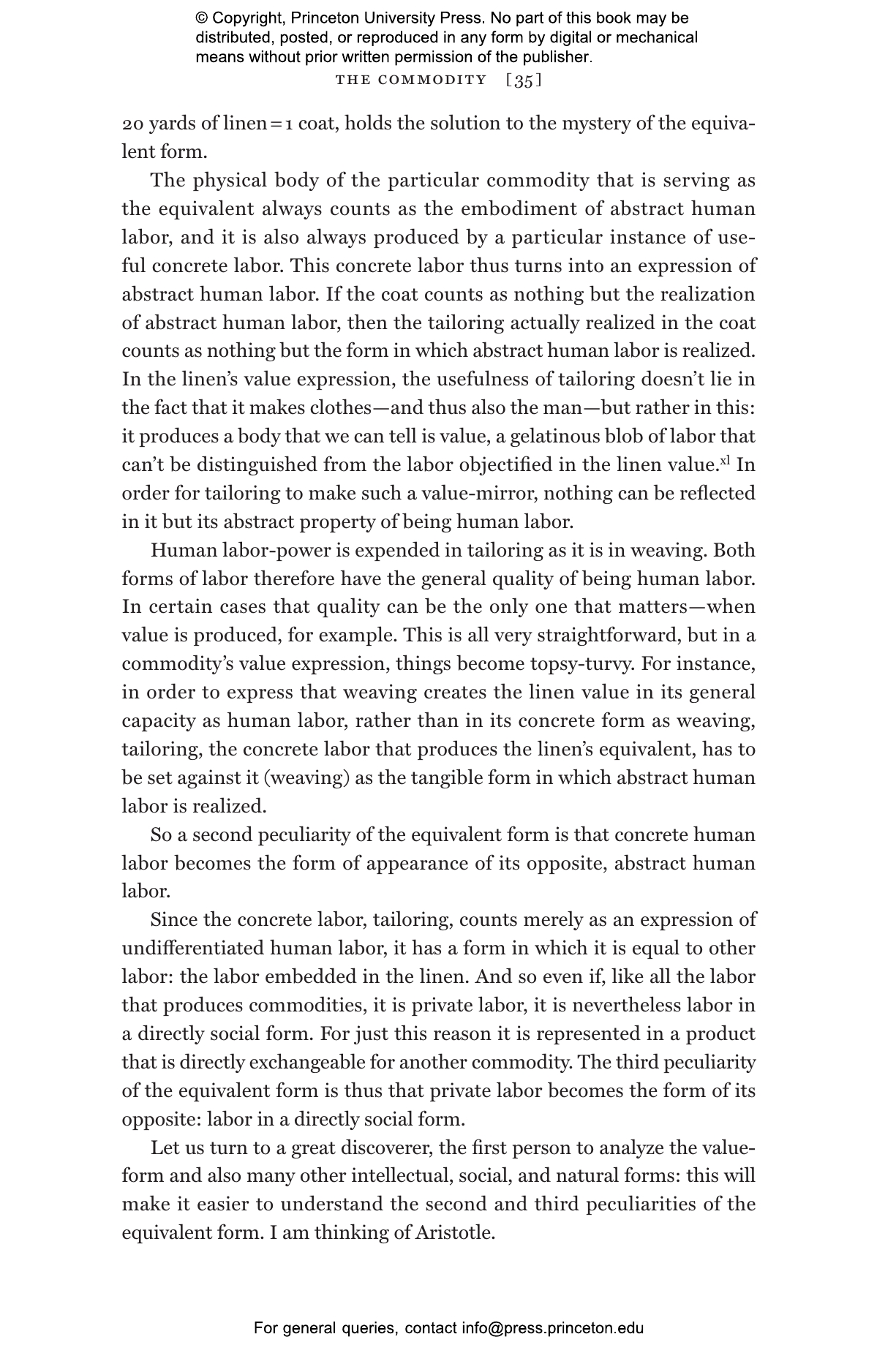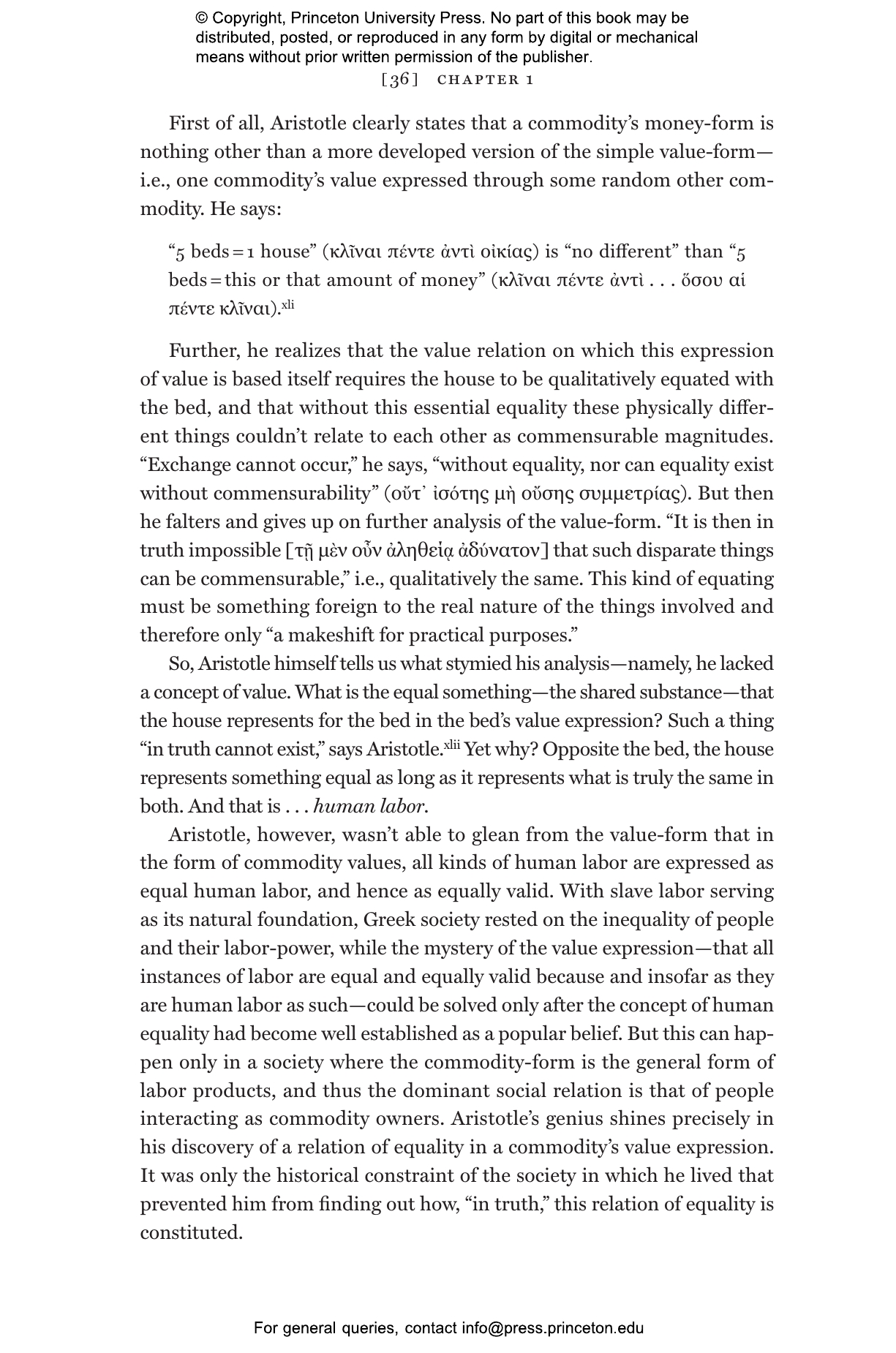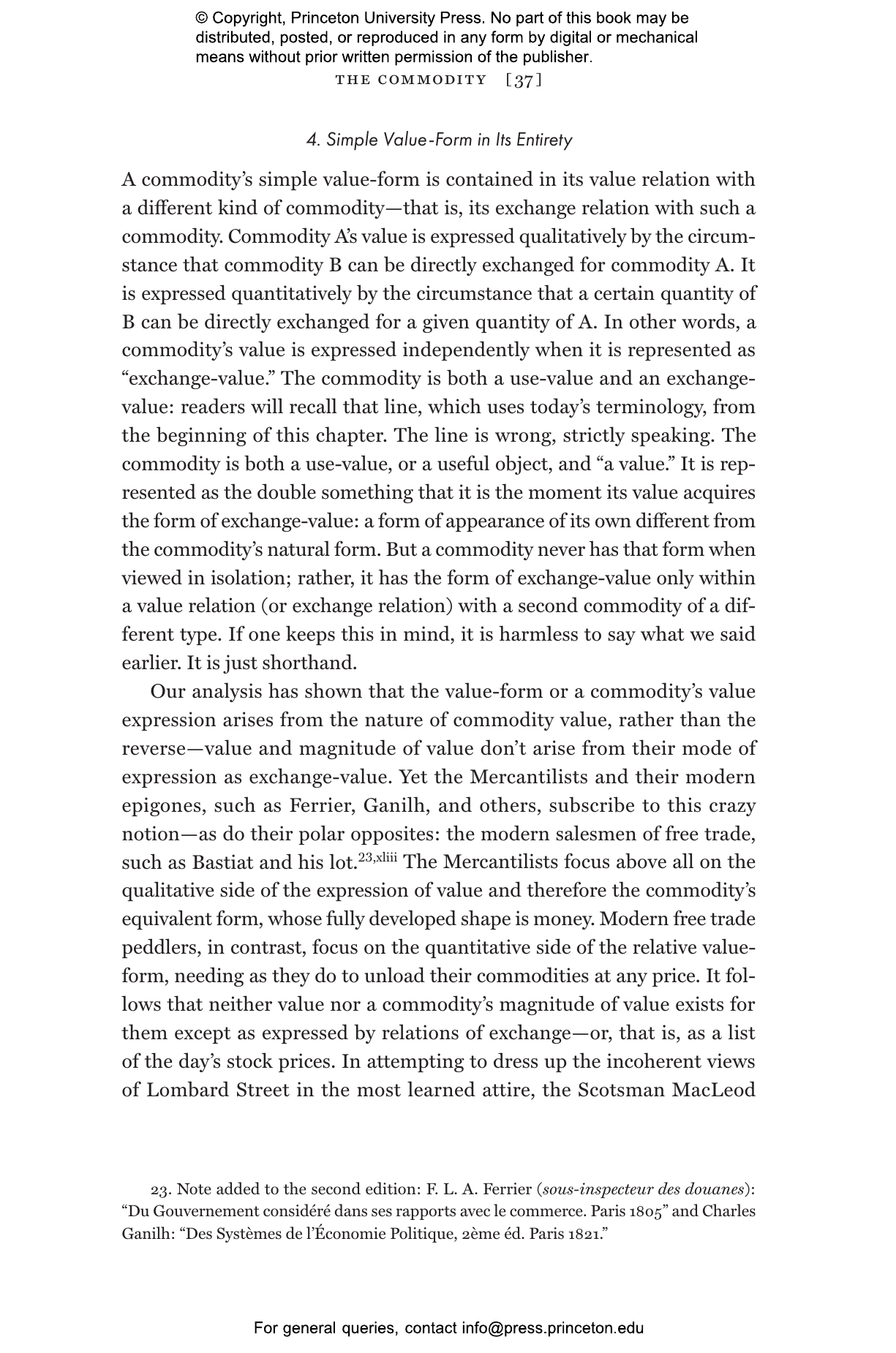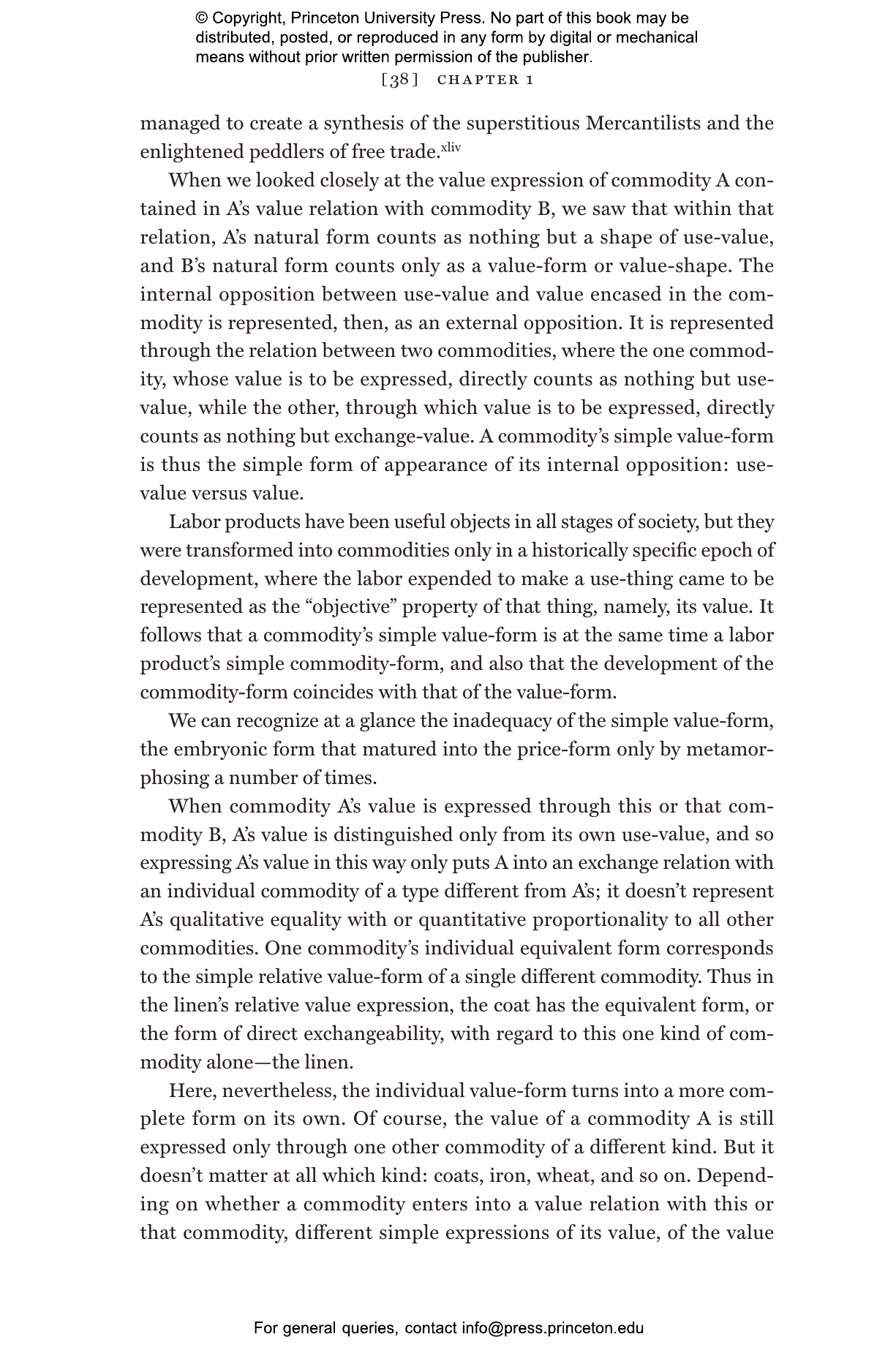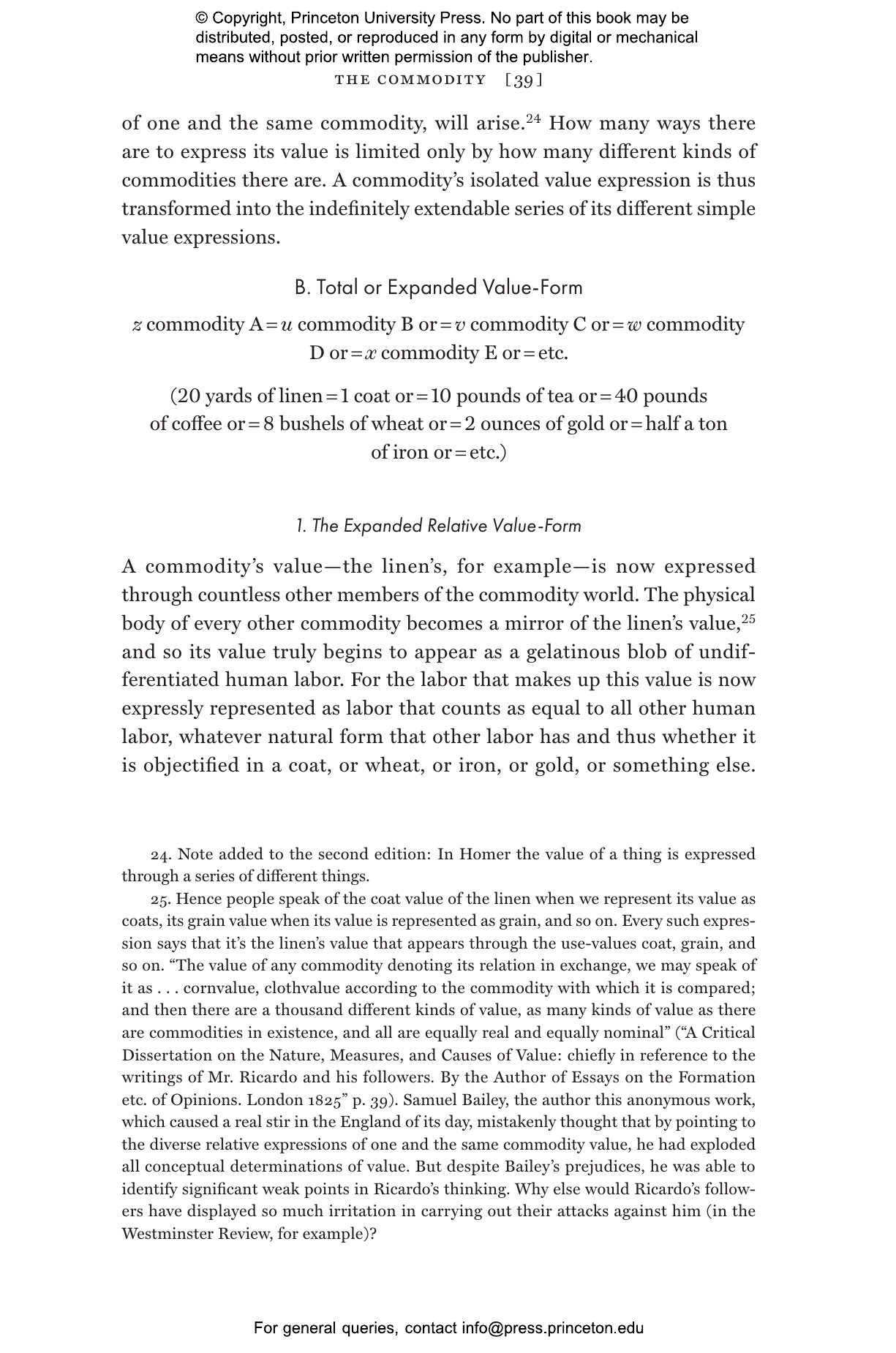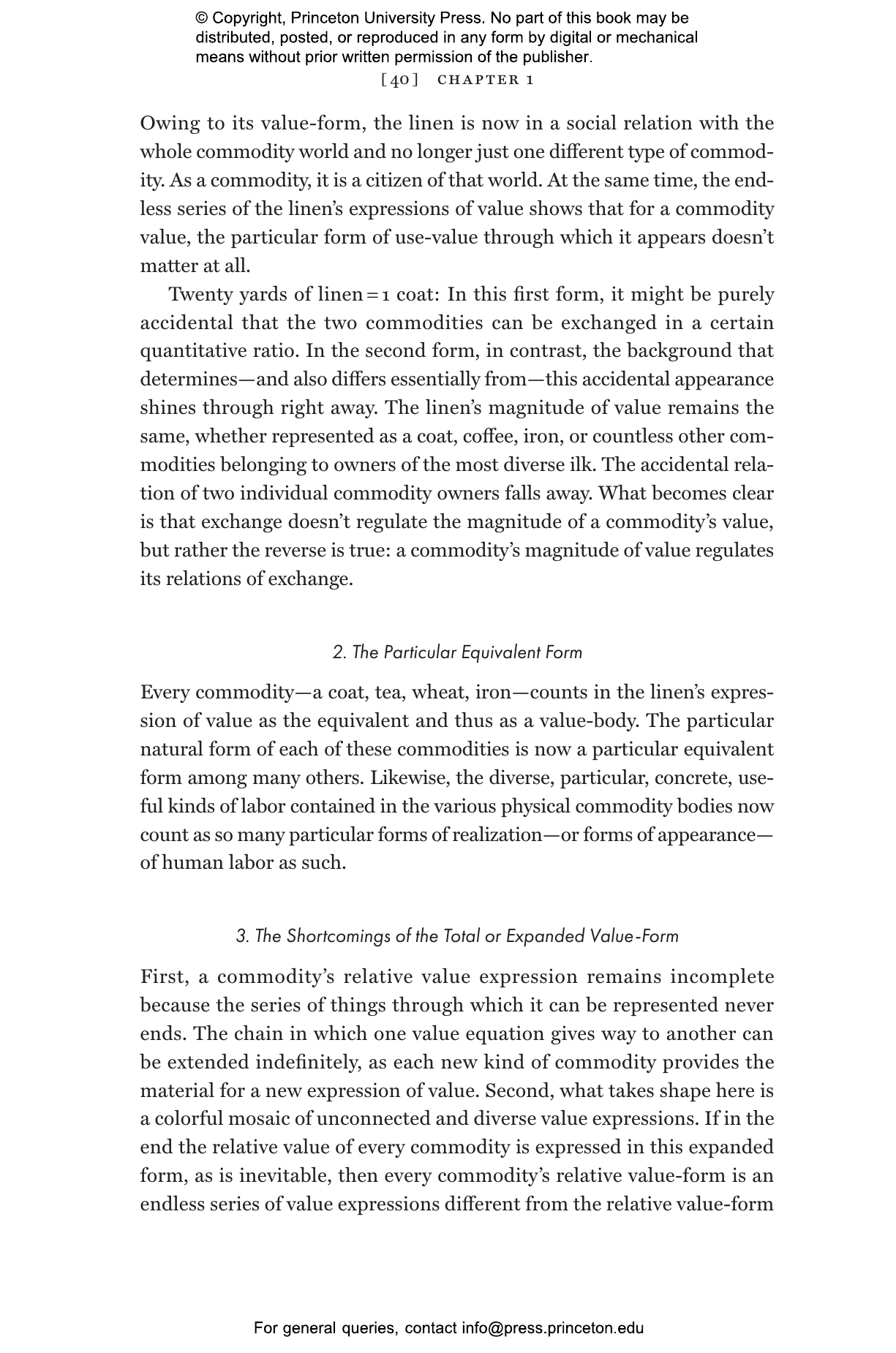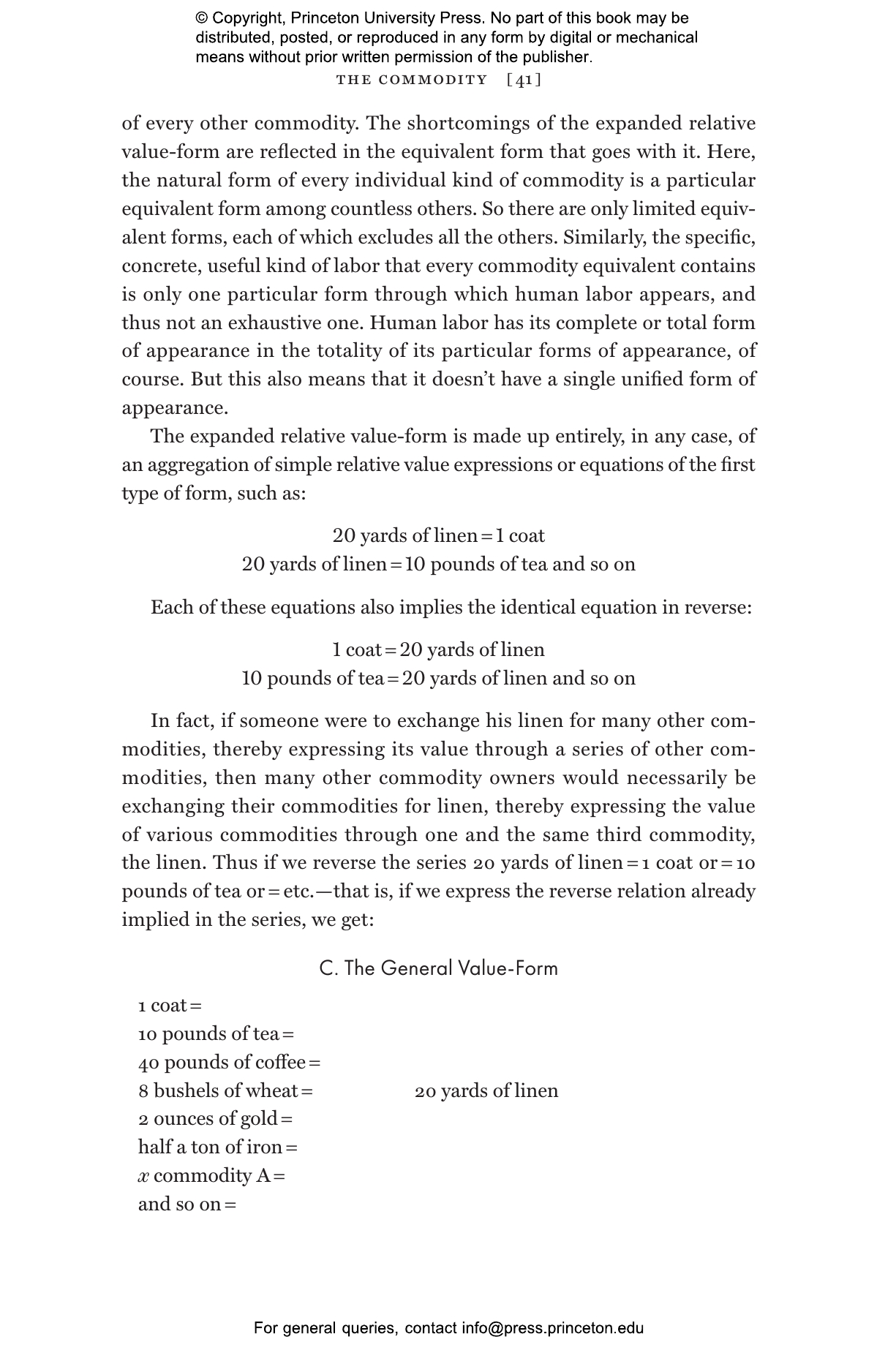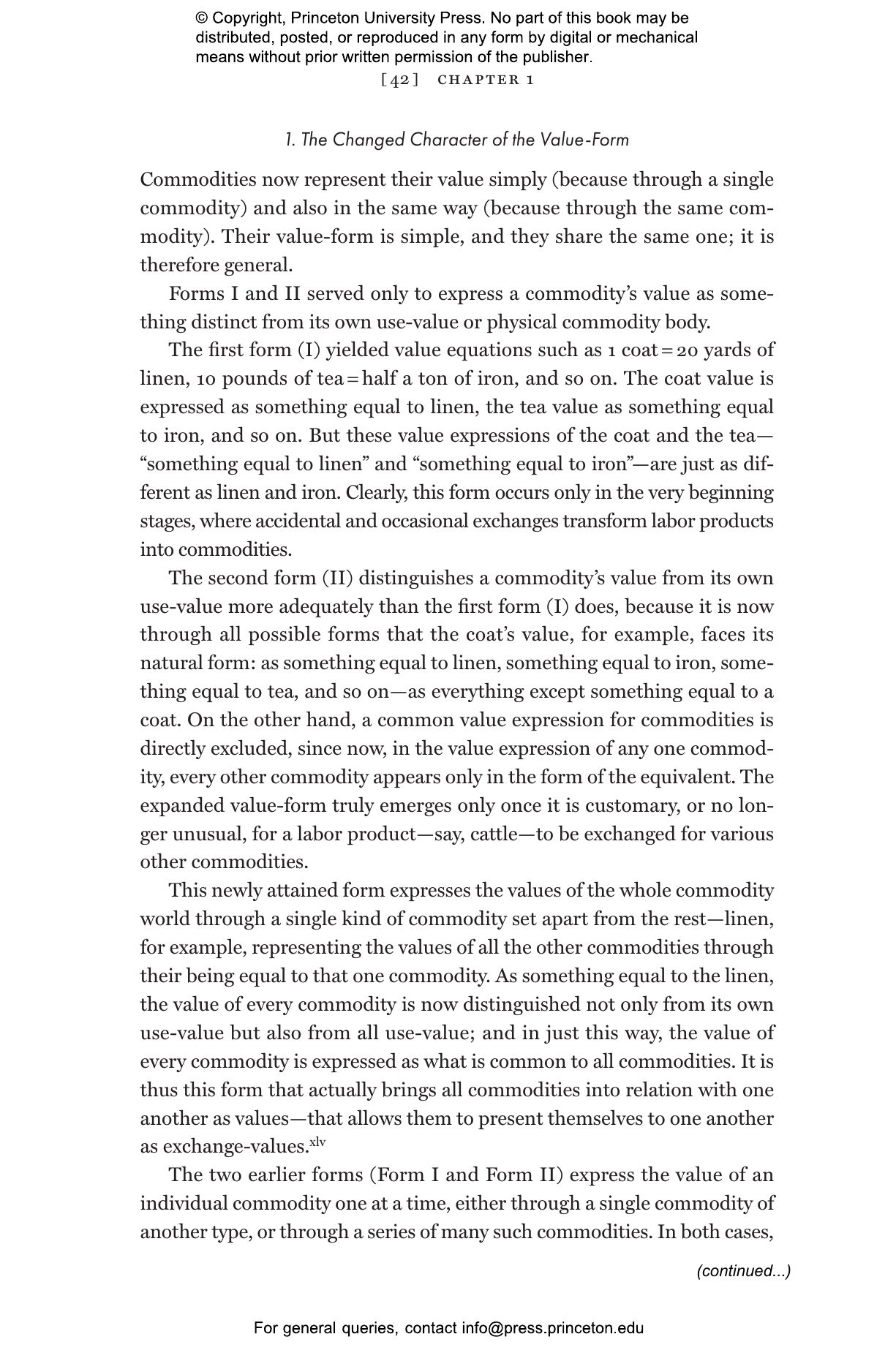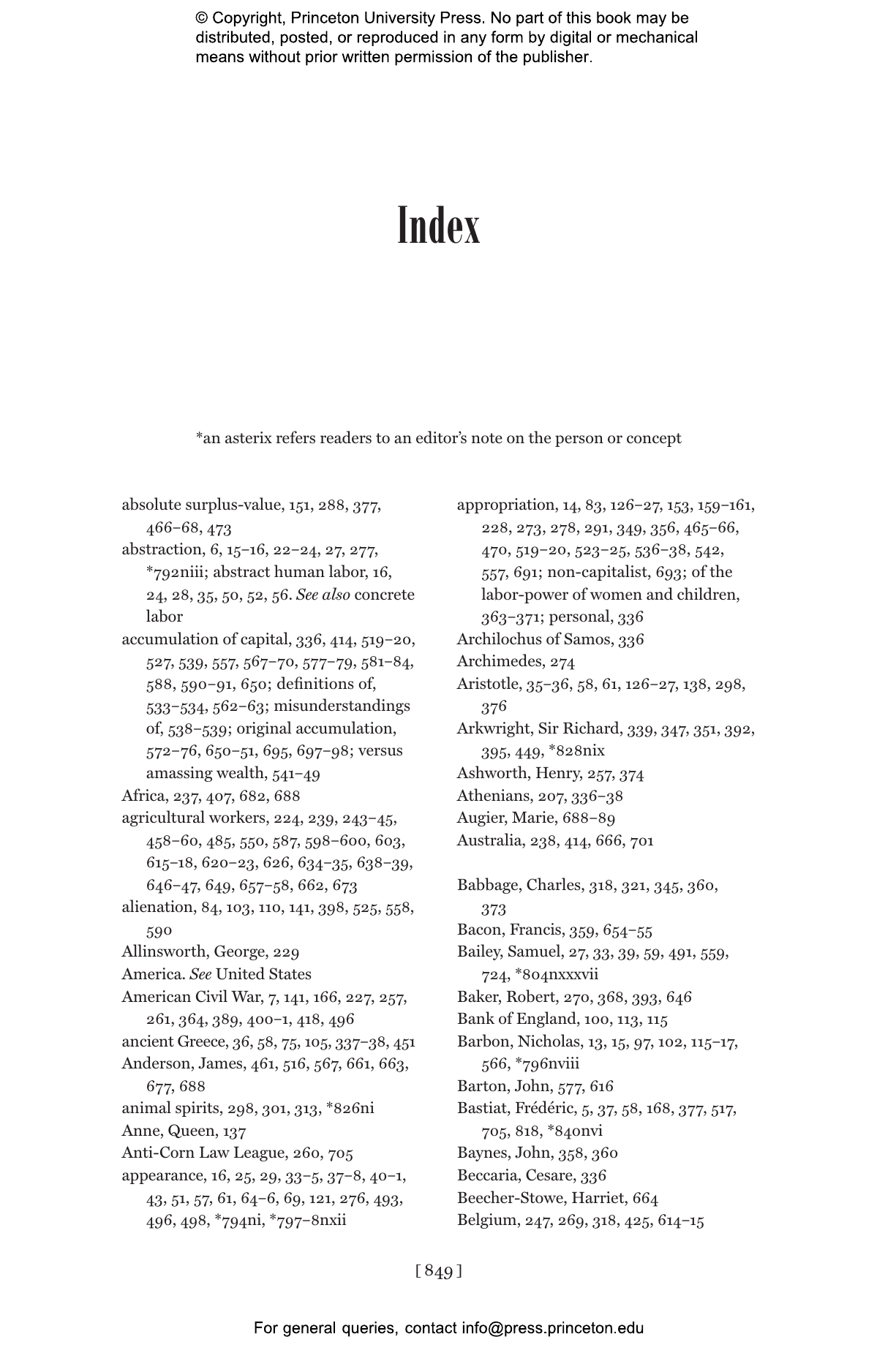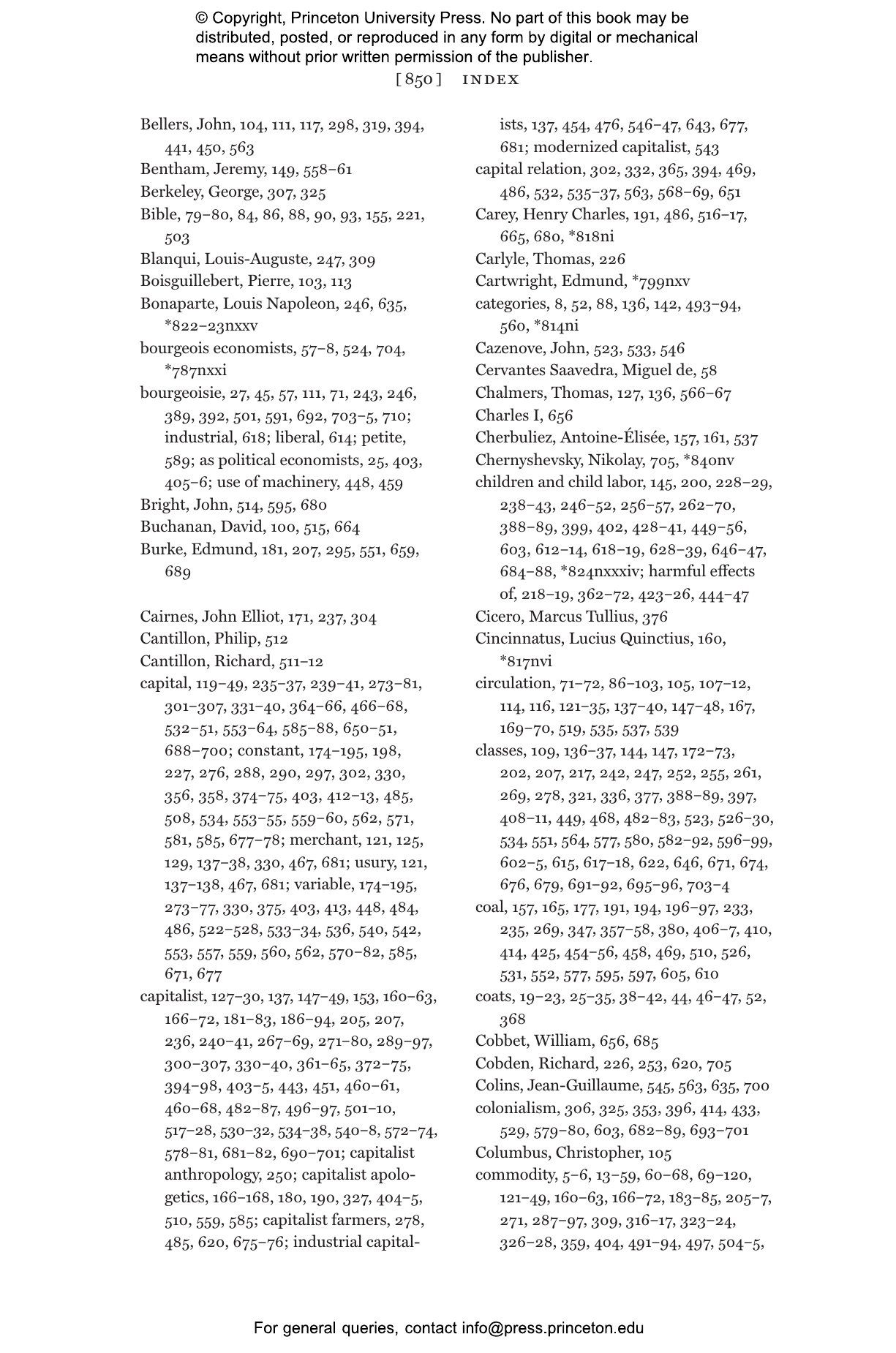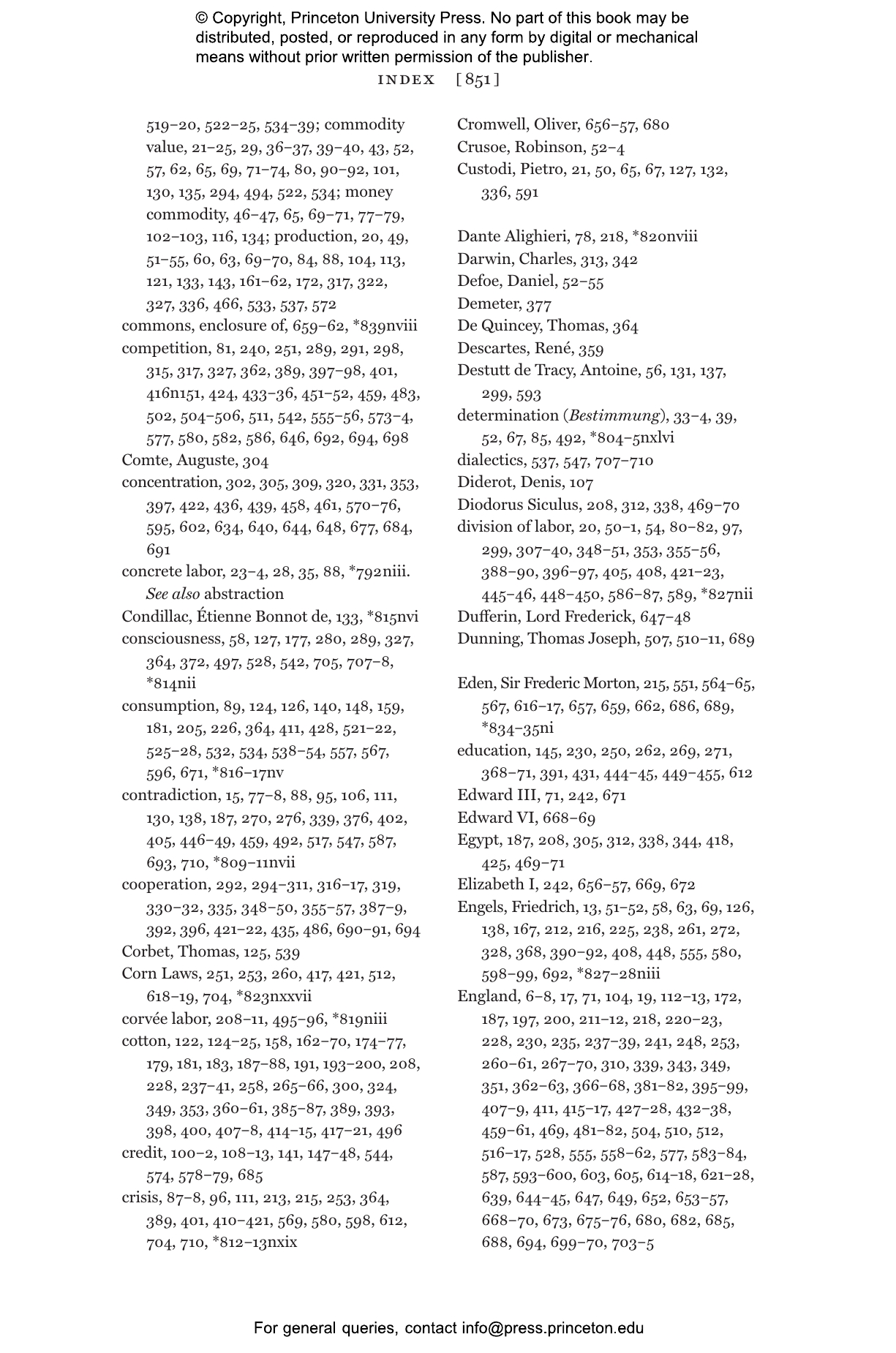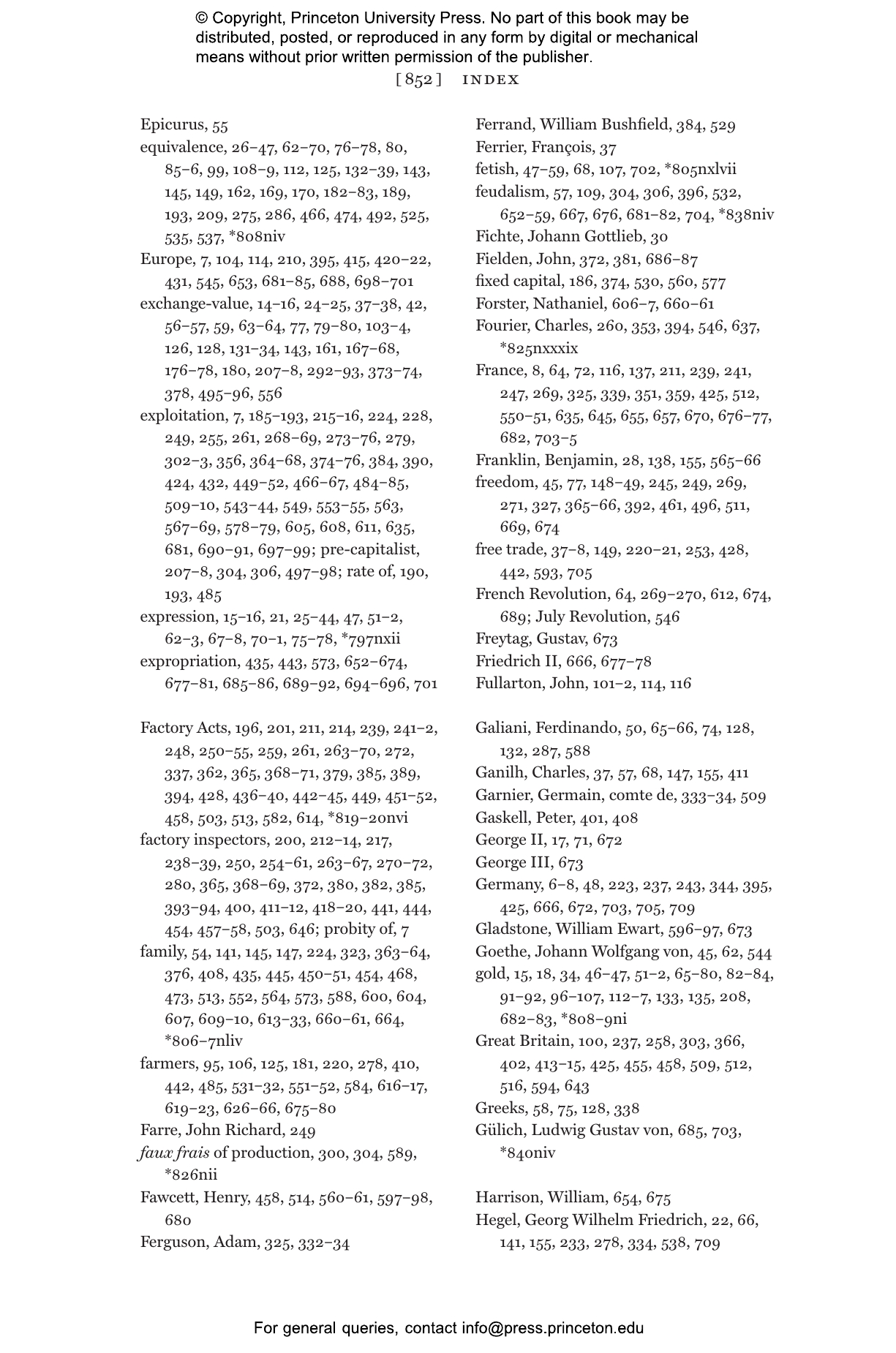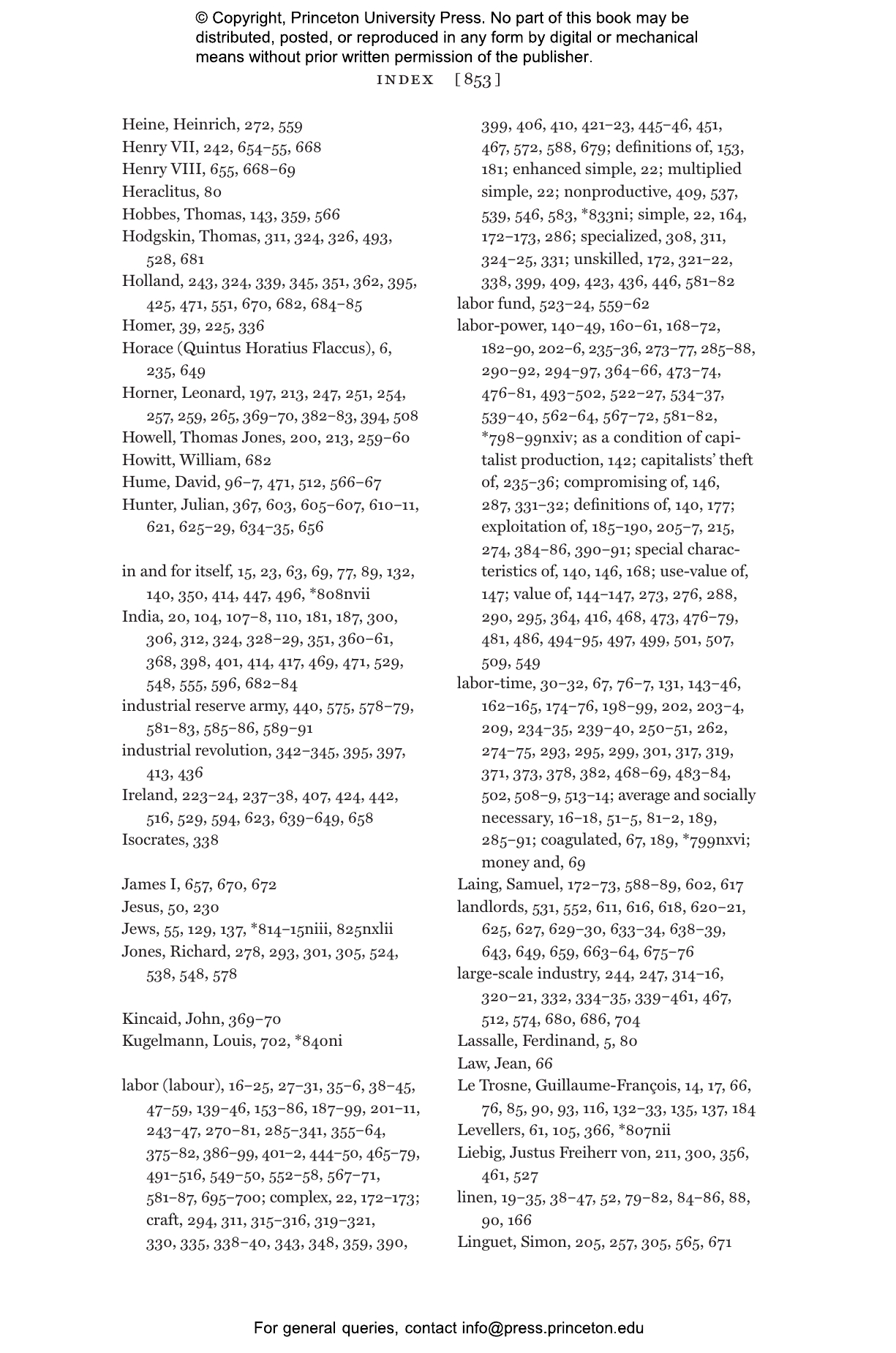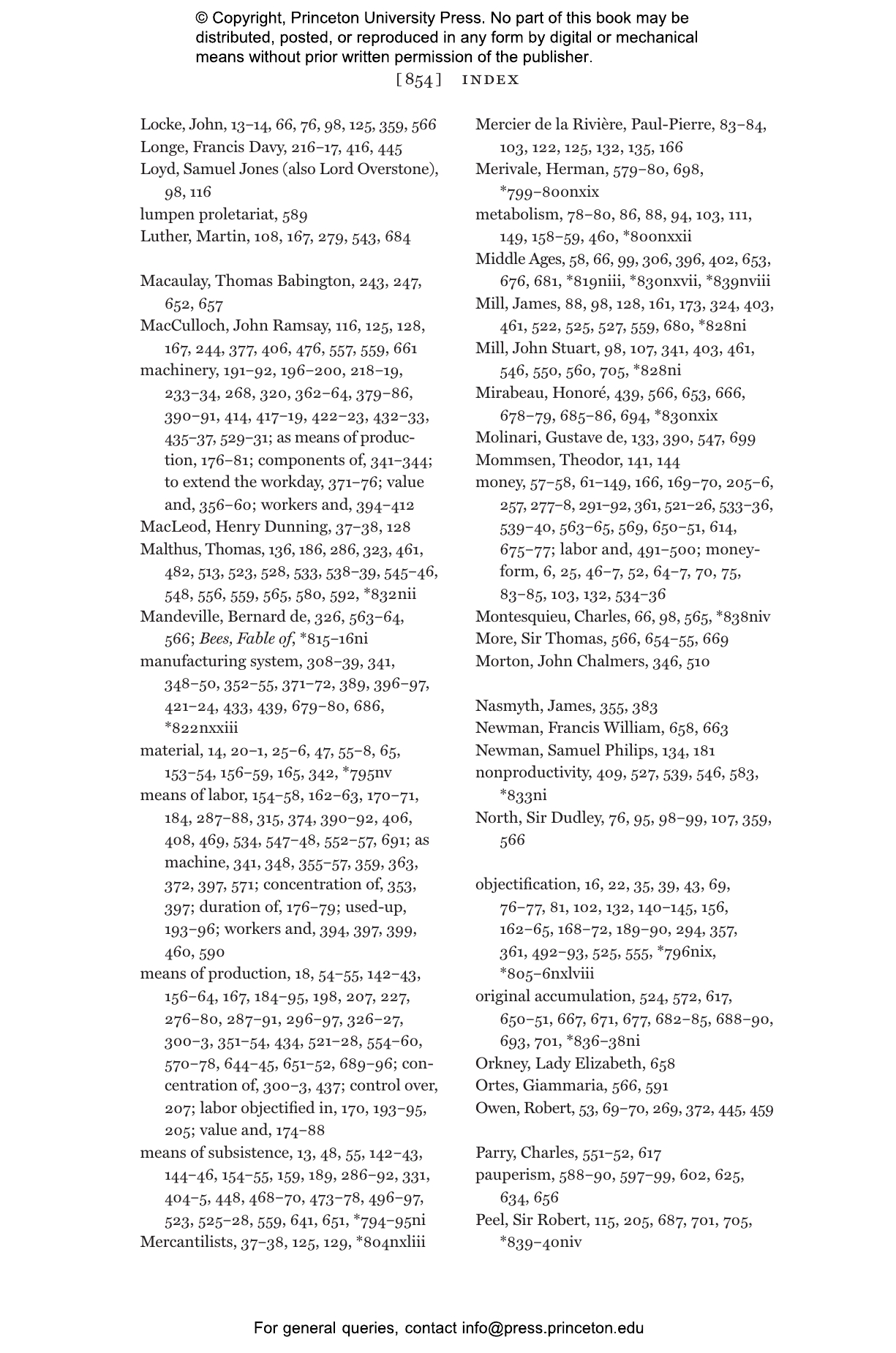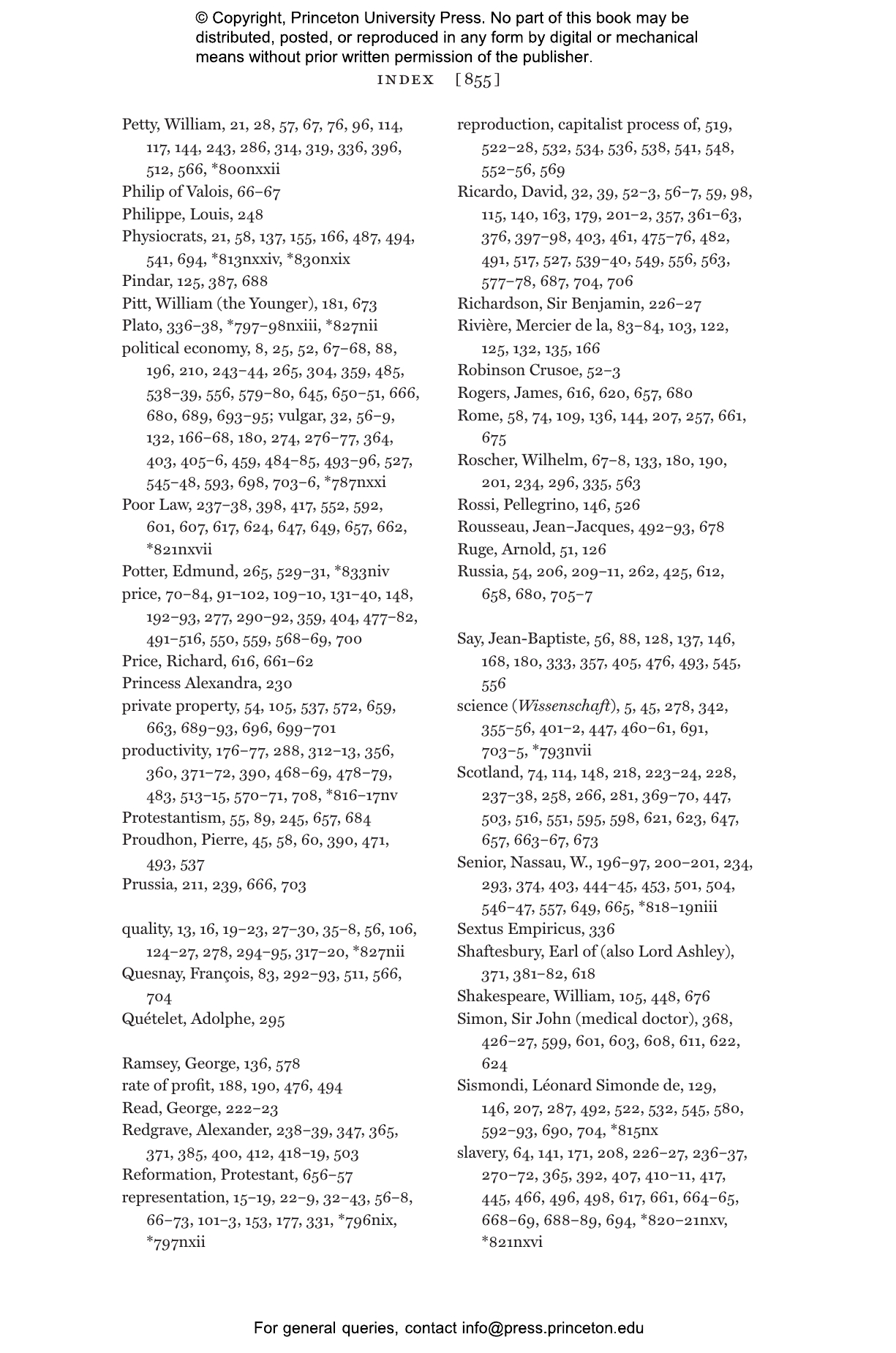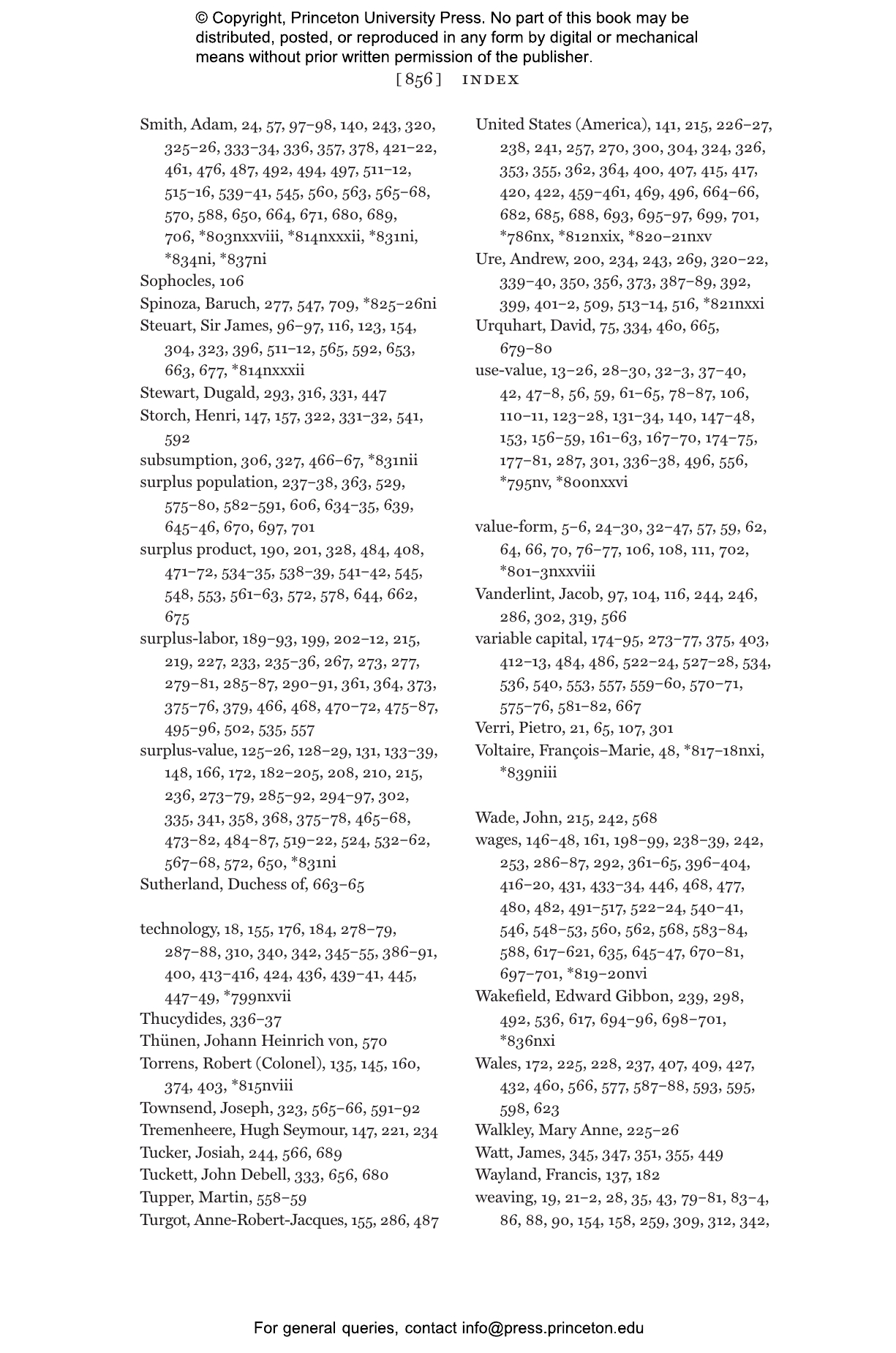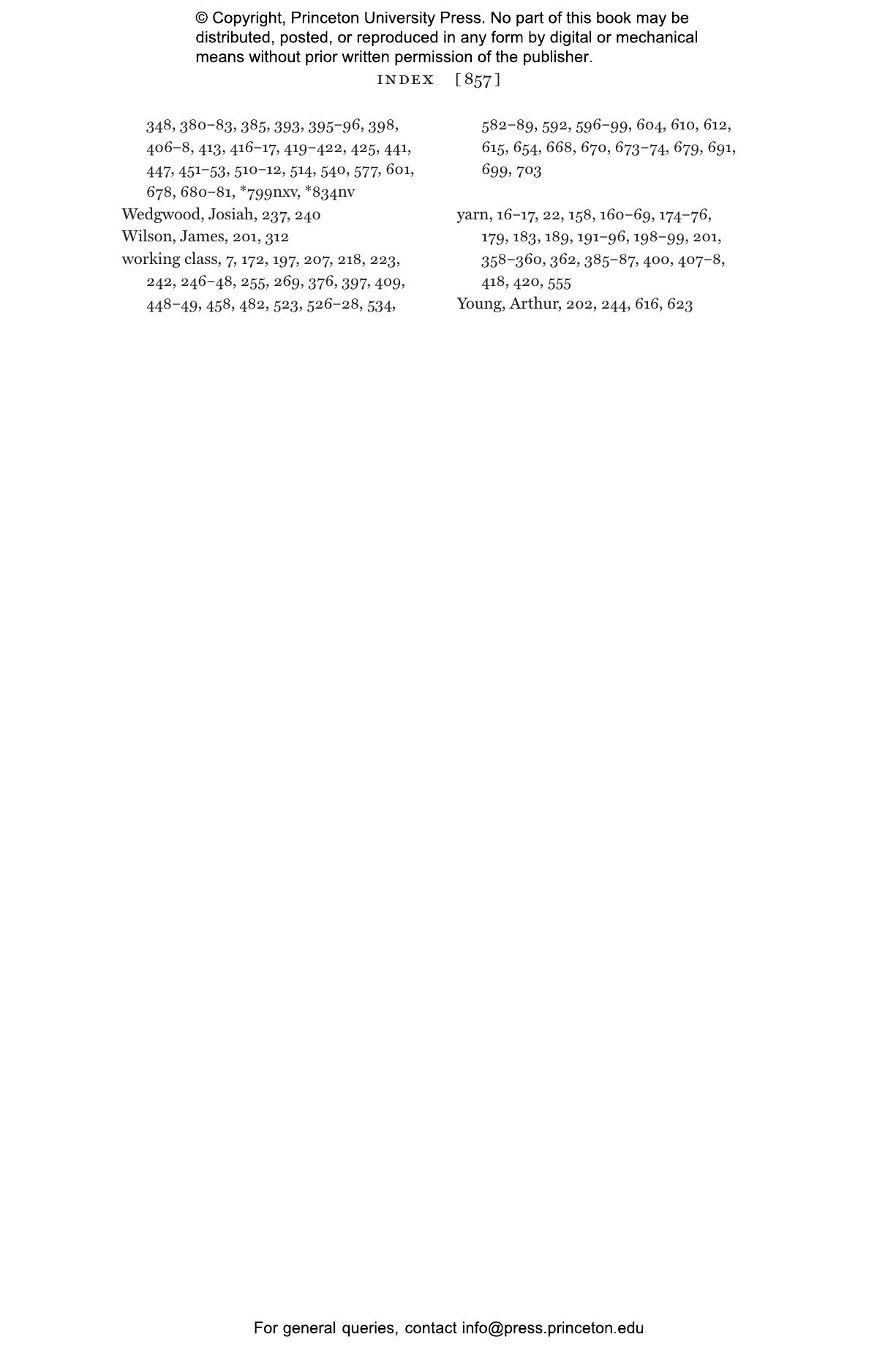Karl Marx (1818–1883) was living in exile in England when he embarked on an ambitious, multivolume critique of the capitalist system of production. Though only the first volume saw publication in Marx’s lifetime, it would become one of the most consequential books in history. This magnificent new edition of Capital is a translation of Marx for the twenty-first century. It is the first translation into English to be based on the last German edition revised by Marx himself, the only version that can be called authoritative, and it features extensive commentary and annotations by Paul North and Paul Reitter that draw on the latest scholarship and provide invaluable perspective on the book and its complicated legacy. At once precise and boldly readable, this translation captures the momentous scale and sweep of Marx’s thought while recovering the elegance and humor of the original source.
For Marx, our global economic system is relentlessly driven by “value”—to produce it, capture it, trade it, and most of all, to increase it. Lifespans are shortened under the demand for ever-greater value. Days are lengthened, work is intensified, and the division of labor deepens until it leaves two classes, owners and workers, in constant struggle for life and livelihood. In Capital, Marx reveals how value came to tyrannize our world, and how the history of capital is a chronicle of bloodshed, colonization, and enslavement.
With a foreword by Wendy Brown and an afterword by William Clare Roberts, this is a critical edition of Capital for our time, one that faithfully preserves the vitality and directness of Marx’s German prose and renders his ideas newly relevant to modern readers.
Awards and Recognition
- A Millions Most Anticipated Book of Summer
Karl Marx (1818–1883) was a German philosopher, historian, and political economist whose critique of capitalism is considered one of the most influential developments in modern thought. Paul Reitter is professor of Germanic languages and literatures and former director of the Humanities Institute at the Ohio State University. His translations include The Autobiography of Solomon Maimon (Princeton). Paul North is the Maurice Natanson Professor of German at Yale University. His books include The Yield: Kafka’s Atheological Reformation.
"No previous English version of ‘Capital’ has featured such an erudite critical apparatus or such an exacting translation. It’s a remarkable achievement that forces readers to attend to the philosophical subtleties of Marx’s argument."—James Miller, New York Times Book Review
"In a world that burns more quickly by the day—after centuries of industrial rapacity, and with ever-increasing flares of fascism—a new English translation of Marx, and the first to be based on his final revision of this foundational critique of capitalism, is just what the people ordered."—The Millions
"Marx’s model of capitalism as an inherently crisis-generating system became more plausible to many readers in the wake of the global financial system’s near-collapse in 2008. Arriving 16 years later—to the month, as it turned out—Princeton University Press’s new translation of Capital arrives as a certified classic. The edition draws on generations of scholarship on Marx’s economic manuscripts, which are voluminous in mass and headache-making in penmanship. Prefatory essays by the political theorist Wendy Brown and by Paul North, a scholar of German literature, move between the 19th-century context of Marx’s writing and the 21st-century horizon of the new edition’s readers."—Scott McLemee, Inside Higher Ed
"The introduction, translation, and critical notes, by Paul North and Paul Reitter simply make this the edition to have."—David Murphy, Open Letters Review
"The Reitter translation of Capital will likely be the English speaking world’s access text to Marx for at least the next fifty years, as the Fowkes was before it. . . . Reitter’s new translation continues the life of Capital, creating something new while faithfully delivering an accurate text."—M. P. Ross, Applied Political Theory


